#need her to release another country album
Explore tagged Tumblr posts
Text


My emotionally abusive ex made hating Taylor Swift into a personality trait so I started listening to her out of spite.
Debut is my favorite. Have some drawings I did before I dumped him <3
[Commissions Open!!]
[Do Not Repost My Art]
#art#artists on tumblr#taylor swift#im not even like a mega superfan or anything I was a hater too (do better on your environmental impact girl.)#it was just real fuckin annoying when he made it a personality trait so i sat down and gave her a genuine try.#need her to release another country album#debut supremacy#the i did something bad live performance was life-altering though.
7 notes
·
View notes
Text
Biggest fan || Leah Williamson x singer!reader
Request | Masterlist | prompt list
Yes, I’ve based reader on Taylor swift…
Summary Leah being your biggest fan
You were finally coming to the end of your world tour.
The past two years you’d travelled to over 25 countries, playing over 150 shows and performed at sold out stadiums all over the world.
The tour had made history. It became the highest grossing tour ever, surpassing over £1 billion.
You’d been singing your whole life, but you released your first album when you were just 15 years old.
Since that age, you’d released 10 other albums in the space of 13 years.
You’d done world tours before, but this was the biggest one to date.
This tour consisted songs from all of your albums, making each show over three hours long.
You loved going on tour, but hated it at the same time.
You loved it because you got to do what you loved, singing your heart out to people who you loved dearly every night.
But you hated it because you missed the person you loved most of all.
Your girlfriend, Leah.
Singing had brought you many good things, but the greatest thing was by far, Leah.
Leah and you met at a charity event five years ago.
You were sat next to each other and just hit it off.
It had always been hard to find relationships, often being judged for them, or people taking advantage of you, and your social status within the world.
But there was something different about Leah.
Leah treated you normal, she treated you as if you were a normal person, and that’s all you’d ever wanted.
In Leah’s eyes, you were some gorgeous girl called Y/N, not Y/N the world biggest pop star.
From that night, you and Leah kept talking, meeting up for coffee dates before Leah finally asked you to be her girlfriend.
At first you were hesitant, not knowing if Leah knew the downfalls that came with you, but when you told her, she shut you down claiming that she loved you and any downfall wasn’t big enough to not be with you.
In that moment, you knew Leah was the one for you.
But that didn’t prevent the hurt of leaving her for tours.
One of your previous tours gave Leah a vision of what life was like without you by her side, but when you both made an equal effort to talk to one another every day, you knew it was going to be okay.
That tour finished and not long after, Covid hit and you and Leah were stuck with each other for months.
It was exactly what you needed after not being with each other for months.
During Covid, you wrote two albums, with the help of Leah, that you published.
Once Covid had gone, your publicist came to you and asked if you had any plans for a tour.
You explained your thoughts about a tour with all most of your albums in and the tour started its planning shortly after.
That’s what led to the Eras Tour.
A tour that included most of your eras, except one, but there was a reason behind that.
You planned to start in America, doing over 50 shows there before moving internationally.
What you hadn’t expected was to extend the tour and add several more shows due to the demand of tickets.
At first, you were concerned about the pressure that was being put on your relationship, worried that two years was too long for Leah.
Leah was incredible though. Saying that she was going to come and spend as much time with you when she had breaks from matches.
Leah had also done her ACL as well, so she had a lot of free time on her hands, so what not better to do than come and support her girl.
As you were approaching your final shows, you and Leah were talking about your future together and what it held.
You’d hoped that your fans had gotten the message that once the tour was over, you’d be having a well deserved break from the industry.
You were having this break to spend time with your family, and also to create a family.
You and Leah had discussed having a baby once your tour ended as it felt like the right time.
With this decision in mind, you knew your final show was going to be emotional and that’s why you desperately wanted Leah to be there, even though Leah was going to be there no matter what.
What you didn’t know is that Leah had invited the whole of the Arsenal squad, and England squad, along with all her family, wanting to show off how talented you were, although everyone already knew from her non stop bragging.
You didn’t mind though, it was an emotional time and you wanted people you loved to be there with you.
Your final show was at a sold out Wembley, your eighth sold out Wembley on the tour.
The crowd was incredible like always, screaming the lyrics to your songs for three hours straight.
You kept looking over to Leah throughout the show, a proud look never leaving her face.
As you sang your final song of the show, using the iconic lyric change, karma is the girl in the team, you turned to look at the audience, bringing the mic to your mouth as tears welled in your eyes.
“Can you please give a massive round of applause for my backup dancers, my background singers, my band, and everyone who’s been involved in the tour.” You began, your voice shaking as you brought your backup and band team onto the stage once more. “We’ve made so many memories over the past 632 days, but you Wembley, have been by far one of the best of them.”
You looked at Leah who had tears in her eyes.
“There’s also just a few other people I’d like to thank…” you went through a list of them, thanking your family and friends, and the fans, but as you came to the last one, you felt like crying. “The biggest thank you goes to the girl on the team. Le, You’ve been nothing but supportive of me since we met but especially over the course of the past two years. So Thank you, le.”
At that everyone cheered her as you looked at her, tears streaming down her face.
Music started playing again as another lot of confetti was released.
“Goodnight everyone! Oh, and, this has been the Eras tour! I hope you enjoyed it!” You said, as everyone cheered for a final time.
As the stage went down, you were met with a very teary eyed Leah.
She immediately hugged you, pressing kisses all over your face.
“I’m so proud of you.” Leah whispered
“I couldn’t have done it without you.” You told her and more tears escaped your eyes.
“I love you.” Leah said, squeezing you harder.
“I love you too.”
—
“Now, toast.” Leah announced as she got up from the table.
Leah had treated you to a dinner with all of her teammates and family as a congratulations to the end of the tour.
“I dedicate this toast to my girl. My Y/N has done 153 shows over the past two years and has broken records for it. She’s also happened to break records about the most Grammy’s too but—” Leah began as you buried your head in your hands embarrassed.
“—We get it, Leah. You’re her biggest fan. We get it.” Beth joked as the table erupted in laughter.
“Anyway, to skip all the figures and statistics, I just wanted to say how proud I am of yoy. The tour has brought highs and lows but you’ve managed to get through them and for that, I am immensely proud. So, raise your glasses to the one, the only, Y/N Y/L/N.” Leah finished, hyping you up, as everyone raised their glasses before taking a sip.
Leah sat back down in her seat next to you, your arm wrapping with hers.
“Thank you, baby.” You whispered as the table fell back into light chatter.
“Everything I said is true.”
“I love you, Y/N.”
“I love you too, Leah.” You were about to lean in for a kiss before stopping, Leah whining at the fact your lips didn’t connect. “Wait, even the fact that you’re my biggest fan?”
At that, Leah’s face just turned bright red.
“It’s true, she always plays your songs in the changing rooms, always pointing out that it’s her girlfriend singing.” Alessia told you from your right and you laughed, Leah’s face turning even more red.
“My biggest fan.”
“Can I have my kiss now?” Leah mumbled, and you gently pressed your lips on hers.
“Anything for my biggest fan.”
#woso x reader#woso#woso community#woso imagine#womens football#woso fanfics#leah williamson#leah williamson x reader
422 notes
·
View notes
Text
If you need any convincing that Noel and Liam Gallagher are incestuous freaks (affectionate), here's the basic information you need
First of all. The kisses
Loch Lomond kiss, where they just... made out on stage in front of cameras. Cool. There's a gif with every photo from every angle.
Another kiss, this time in Japan. Here's the actual video.
And here's the same video but together with nice quotes from their 2016 documentary:
Here's a 2005 award event where they kiss again and also look quite in love
And here's Liam straight up groping Noel during concerts:
General stage antics and more groping:
Just one more groping
Ok. Let's talk about the music, then
Oasis has a song that Noel wrote called "My Sister Lover". The title speaks for itself, really. It includes amazing lyrics such as "You're my lover, I'm your brother"
But there's more! Noel used the same chorus of this song (with different lyrics) for a song he released in his solo album, 20 years later. It's called "Lock All the Doors". The very first line says: "She wore a star-shaped tambourine, prettiest girl I’d ever seen". And guess... guess who famously played a star-shaped tambourine? Liam! And Noel was the one that gifted him the fucking tambourine!!
Liam wrote a song for Oasis called Guess God Thinks I'm Abel
I'll just link everything that's been said about this song, because it really is batshit insane that this song exists
(It's common in the north of England to refer to things and people as "our". When either Liam or Noel say "our kid", they're talking about each other)
Liam has the tendency of thinking every song Noel writes is about him, including the love songs
Here he says "I'm his muse", along with some other interesting quotes
Ok, now we're on to suspicious quotes!
They had sex last night, according to Liam
This one is my favorite:
Of course this one is just all the weird quotes jammed in one post, you can feel yourself going crazy as you read it
Noel assures us that Liam knows about his arse
Other people confirming that they act like a couple. And them being fucking weird about each other’s marriages.
This one has Noel saying Liam is deeply in love with him. At the bottom, Liam's tweet.
Actually Liam always tweets things that basically confirm they're relationship. Like when somebody asked him if he ever rimmed Noel. Yeah.
This radio interview is where the most lovely quotes come from. Only Noel was supposed to be interviewed but then they both showed up PISSED DRUNK. Transcription in the same post
Even More weird quotes
This one involves the word impregnate
Noel making a suspicious comment about his daughter and son, Anais and Donovan
I think to be convinced you really just need that, but I'd like to add some niceties.
Just genuinely enjoying each other’s company
This is from the Oasis; 10 Minutes Of Noise and Confusion documentary. As Noel is kissing Liam's cheek, Liam is saying "He’s a fucking cunt and I hate him and I love him and he twists my melon, man. He’s the best songwriter in the fucking world.”
Some sweet quotes, and some less sweet ones as well
From the Supersonic documentary
Hugging after playing football
Just being silly
To finish off, two wonderful video edits with endearing moments
407 notes
·
View notes
Text
In 2006, the year Taylor Swift released her first single, a closeted country singer named Chely Wright, then 35, held a 9-millimeter pistol to her mouth. Queer identity was still taboo enough in mainstream America that speaking about her love for another woman would have spelled the end of a country music career. But in suppressing her identity, Ms. Wright had risked her life.
In 2010, she came out to the public, releasing a confessional memoir, “Like Me,” in which she wrote that country music was characterized by culturally enforced closeting, where queer stars would be seen as unworthy of investment unless they lied about their lives. “Country music,” she wrote, “is like the military — don’t ask, don’t tell.”
The culture in which Ms. Wright picked up that gun — the same one in which Ms. Swift first became a star — was stunningly different from today’s. It’s dizzying to think about the strides that have been made in Americans’ acceptance of the L.G.B.T.Q. community over the past decade: marriage equality, queer themes dominating teen entertainment, anti-discrimination laws in housing and, for now, in the workplace. But in recent years, a steady drip of now-out stars — Cara Delevingne, Colton Haynes, Elliot Page, Kristen Stewart, Raven-Symoné and Sam Smith among them — have disclosed that they had been encouraged to suppress their queerness in order to market projects or remain bankable.
The culture of country music hasn’t changed so much that homophobia is gone. Just this past summer, Adam Mac, an openly gay country artist, was shamed out of playing at a festival in his hometown because of his sexual orientation. In September, the singer Maren Morris stepped away from country music; she said she did so in part because of the industry’s lingering anti-queerness. If country music hasn’t changed enough, what’s to say that the larger entertainment industry — and, by extension, our broader culture — has?
Periodically, I return to a video, recorded by a shaky hand more than a decade ago, of Ms. Wright answering questions at a Borders bookstore about her coming out. She likens closeted stardom to a blender, an “insane” and “inhumane” heteronormative machine in which queer artists are chewed to bits.
“It’s going to keep going,” Ms. Wright says, “until someone who has something to lose stands up and just says ‘I’m gay.’ Somebody big.” She continues: “We need our heroes.”
What if someone had already tried, at least once, to change the culture by becoming such a hero? What if, because our culture had yet to come to terms with homophobia, it wasn’t ready for her?
What if that hero’s name was Taylor Alison Swift?
In the world of Taylor Swift, the start of a new “era” means the release of new art (an album and the paratexts — music videos, promotional ephemera, narratives — that supplement it) and a wholesale remaking of the aesthetics that will accompany its promotion, release and memorializing. In recent years, Ms. Swift has dominated pop culture to such a degree that these transformations often end up altering American culture in the process.
In 2019, she was set to release a new album, “Lover,” the first since she left Big Machine Records, her old Nashville-based label, which she has since said limited her creative freedom. The aesthetic of what would be known as the “Lover Era” emerged as rainbows, butterflies and pastel shades of blue, purple and pink, colors that subtly evoke the bisexual pride flag.
On April 26, Lesbian Visibility Day, Ms. Swift released the album’s lead single, “ME!,” in which she sings about self-love and self-acceptance. She co-directed a campy music video to accompany it, which she would later describe as depicting “everything that makes me, me.” It features Ms. Swift dancing at a pride parade, dripping in rainbow paint and turning down a man’s marriage proposal in exchange for a … pussy cat.
At the end of June, the L.G.B.T.Q. community would celebrate the 50th anniversary of the Stonewall Riots. On June 14, Ms. Swift released the video for her attempt at a pride anthem, “You Need to Calm Down,” in which she and an army of queer celebrities from across generations — the “Queer Eye” hosts, Ellen DeGeneres, Billy Porter, Hayley Kiyoko, to name a few — resist homophobia by living openly. Ms. Swift sings that outrage against queer visibility is a waste of time and energy: “Why are you mad, when you could be GLAAD?”
The video ends with a plea: “Let’s show our pride by demanding that, on a national level, our laws truly treat all of our citizens equally.” Many, in the press and otherwise, saw the video as, at best, a misguided attempt at allyship and, at worst, a straight woman co-opting queer aesthetics and narratives to promote a commercial product.
Then, Ms. Swift performed “Shake It Off” as a surprise for patrons at the Stonewall Inn. Rumors — that were, perhaps, little more than fantasies — swirled in the queerer corners of her fandom, stoked by a suggestive post by the fashion designer Christian Siriano. Would Ms. Swift attend New York City’s WorldPride march on June 30? Would she wear a dress spun from a rainbow? Would she give a speech? If she did, what would she declare about herself?
The Sunday of the march, those fantasies stopped. She announced that the music executive Scooter Braun, who she described as an “incessant, manipulative” bully, had purchased her masters, the lucrative original recordings of her work.
Ms. Swift’s “Lover” was the first record that she created with nearly unchecked creative freedom. Lacking her old label’s constraints, she specifically chose to feature activism for and the aesthetics of the L.G.B.T.Q. community in her confessional, self-expressive art. Even before the sale of her masters, she appeared to be stepping into a new identity — not just an aesthetic — that was distinct from that associated with her past six albums.
When looking back on the artifacts of the months before that album’s release, any close reader of Ms. Swift has a choice. We can consider the album’s aesthetics and activism as performative allyship, as they were largely considered to be at the time. Or we can ask a question, knowing full well that we may never learn the answer: What if the “Lover Era” was merely Ms. Swift’s attempt to douse her work — and herself — in rainbows, as so many baby queers feel compelled to do as they come out to the world?
There’s no way of knowing what could have happened if Ms. Swift’s masters hadn’t been sold. All we know is what happened next. In early August, Ms. Swift posted a rainbow-glazed photo of a series of friendship bracelets, one of which says “PROUD” with beads in the color of the bisexual pride flag. Queer people recognize that this word, deployed this way, typically means that someone is proud of their own identity. But the public did not widely view this as Ms. Swift’s coming out.
Then, Vogue released an interview with Ms. Swift that had been conducted in early June. When discussing her motivations for releasing “You Need to Calm Down,” Ms. Swift said, “Rights are being stripped from basically everyone who isn’t a straight white cisgender male.” She continued: “I didn’t realize until recently that I could advocate for a community that I’m not a part of.” That statement suggests that Ms. Swift did not, in early June, consider herself part of the L.G.B.T.Q. community; it does not illuminate whether that is because she was a straight, cis ally or because she was stuck in the shadowy, solitary recesses of the closet.
On Aug. 22, Ms. Swift publicly committed herself to the as-of-then-unproven project of rerecording and rereleasing her first six albums. The next day, she finally released “Lover,” which raises more questions than it answers. Why does she have to keep secrets just to keep her muse, as all her fans still sing-scream on “Cruel Summer”? About what are the “hundred thrown-out speeches I almost said to you,” in her chronicle of self-doubt, “The Archer,” if not her identity? And what could the album’s closing words, which come at the conclusion of “Daylight,” a song about stepping out of a 20-year darkness and choosing to “let it go,” possibly signal?
I want to be defined by the things that I love,
Not the things I hate,
Not the things that I’m afraid of, I’m afraid of,
Not the things that haunt me in the middle of the night,
I just think that,
You are what you love.
The first time I viewed “Lover” through the prism of queerness, I felt delirious, almost insane. I kept wondering whether what I was perceiving in her work was truly there or if it was merely a mirage, born of earnest projection.
My longtime reading of Ms. Swift’s celebrity — like that of a majority of her fan base — had been stuck in the lingering assumptions left by a period that began more than a decade and a half ago, when a girl with an overexaggerated twang, Shirley Temple curls and Georgia stars in her eyes became famous. Then, she presented as all that was to be expected of a young starlet: attractive yet virginal, knowing yet naïve, not talented enough to be formidable, not commanding enough to be threatening, confessional, eager to please. Her songs earnestly depicted the fantasies of a girl raised in a traditional culture: high school crushes and backwoods drives, princelings and wedding rings, declarations of love that climax only in a kiss — ideally in the pouring rain.
When Ms. Swift was trying to sell albums in that late-2000s media environment, her songwriting didn’t match the image of a sex object, the usual role reserved for female celebrities in our culture. Instead, the story the public told about her was that she laundered her affection to a litter of promising grown men, in exchange for songwriting inspiration. A young Ms. Swift contributed to this narrative by hiding easy-to-decode clues in liner notes that suggested a certain someone was her songs’ inspiration (“SAM SAM SAM SAM SAM SAM,” “ADAM,” “TAY”) or calling out an ex-boyfriend on the “Ellen” show and “Saturday Night Live.” Despite the expansive storytelling in Ms. Swift’s early records, her public image often cast a man’s interest as her greatest ambition.
As Ms. Swift’s career progressed, she began to remake that image: changing her style and presentation, leaving country music for pop and moving from Nashville to New York. By 2019, her celebrity no longer reflected traditional culture; it had instead become a girlboss-y mirror for another dominant culture — that of white, cosmopolitan, neoliberal America.
But in every incarnation, the public has largely seen those songs — especially those for which she doesn’t directly state her inspiration — as cantos about her most recent heterosexual love, whether that idea is substantiated by evidence or not. A large portion of her base still relishes debating what might have happened with the gentleman caller who supposedly inspired her latest album. Feverish discussions of her escapades with the latest yassified London Boy or mustachioed Mr. Americana fuel the tabloid press — and, embarrassingly, much of traditional media — that courts fan engagement by relentlessly, unquestioningly chronicling Ms. Swift’s love life.
Even in 2023, public discussion about the romantic entanglements of Ms. Swift, 34, presumes that the right man will “finally” mean the end of her persistent husbandlessness and childlessness. Whatever you make of Ms. Swift’s extracurricular activities involving a certain football star (romance for the ages? strategic brand partnership? performance art for entertainment’s sake?), the public’s obsession with the relationship has been attention-grabbing, if not lucrative, for all parties, while reinforcing a story that America has long loved to tell about Ms. Swift, and by extension, itself.
Because Ms. Swift hasn’t undeniably subverted our culture’s traditional expectations, she has managed, in an increasingly fractured cultural environment, to simultaneously capture two dominant cultures — traditional and cosmopolitan. To maintain the stranglehold she has on pop culture, Ms. Swift must continue to tell a story that those audiences expect to consume; she falls in love with a man or she gets revenge. As a result, her confessional songs languish in a place of presumed stasis; even as their meaning has grown deeper and their craft more intricate, a substantial portion of her audience’s understanding of them remains wedded to the same old narratives.
But if interpretations of Ms. Swift’s art often languish in stasis, so do the millions upon millions of people who love to play with the dollhouse she has constructed for them. Her dominance in pop culture and the success of her business have given her the rare ability to influence not only her industry but also the worldview of a substantial portion of America. How might her industry, our culture and we, ourselves, change if we made space for Ms. Swift to burn that dollhouse to the ground?
Anyone considering the whole of Ms. Swift’s artistry — the way that her brilliantly calculated celebrity mixes with her soul-baring art — can find discrepancies between the story that underpins her celebrity and the one captured by her songs. One such gap can be found in her “Lover” era. Others appear alongside “dropped hairpins,” or the covert ways someone can signal queer identity to those in the know while leaving others comfortable in their ignorance. Ms. Swift dropped hairpins before “Lover” and has continued to do so since.
Sometimes, Ms. Swift communicates through explicit sartorial choices — hair the colors of the bisexual pride flag or a recurring motif of rainbow dresses. She frequently depicts herself as trapped in glass closets or, well, in regular closets. She drops hairpins on tour as well, paying tribute to the Serpentine Dance of the lesbian artist Loie Fuller during the Reputation Tour or referencing “The Ladder,” one of the earliest lesbian publications in the United States, in her Eras Tour visuals.
During the Eras Tour, Ms. Swift traps her past selves — including those from her “Lover” era — in glass closets.
Dropped hairpins also appear in Ms. Swift’s songwriting. Sometimes, the description of a muse — the subject of her song, or to whom she sings — seems to fit only a woman, as it does in “It’s Nice to Have a Friend,” “Maroon” or “Hits Different.” Sometimes she suggests a female muse through unfulfilled rhyme schemes, as she does in “The Very First Night,” when she sings “didn’t read the note on the Polaroid picture / they don’t know how much I miss you” (“her,” instead of that pesky little “you,” would rhyme). Her songwriting also noticeably alludes to poets whose muses the historical record incorrectly cast as men — Emily Dickinson chief among them — as if to suggest the same fate awaits her art. Stunningly, she even explicitly refers to dropping hairpins, not once, but twice, on two separate albums.
In isolation, a single dropped hairpin is perhaps meaningless or accidental, but considered together, they’re the unfurling of a ballerina bun after a long performance. Those dropped hairpins began to appear in Ms. Swift’s artistry long before queer identity was undeniably marketable to mainstream America. They suggest to queer people that she is one of us. They also suggest that her art may be far more complex than the eclipsing nature of her celebrity may allow, even now.
Since at least her “Lover” era, Ms. Swift has explicitly encouraged her fans to read into the coded messages (which she calls “Easter eggs”) she leaves in music videos, social media posts and interviews with traditional media outlets, but a majority of those fans largely ignore or discount the dropped hairpins that might hint at queer identity. For them, acknowledging even the possibility that Ms. Swift could be queer would irrevocably alter the way they connect with her celebrity, the true product they’re consuming.
There is such public devotion to the traditional narrative Ms. Swift embodies because American culture enshrines male power. In her sweeping essay, “Compulsory Heterosexuality and Lesbian Existence,” the lesbian feminist poet Adrienne Rich identified the way that male power cramps, hinders or devalues women’s creativity. All of the sexist undertones with which Ms. Swift’s work can be discussed (often, even, by fans) flow from compulsory heterosexuality, or the way patriarchy draws power from the presumption that women naturally desire men. She must write about men she surely loves or be unbankable; she must marry and bear children or remain a child herself; she must look like, in her words, a “sexy baby” or be undesirable, “a monster on the hill.”
A woman who loves women is most certainly a monster to a society that prizes male power. She can fulfill none of the functions that a traditional culture imagines — wife, mother, maid, mistress, whore — so she has few places in the historical record. The Sapphic possibility of her work is ignored, censored or lost to time. If there is queerness earnestly implied in Ms. Swift’s work, then it’s no wonder that it, like that of so many other artists before her, is so often rendered invisible in the public imagination.
While Ms. Swift’s songs, largely written from her own perspective, cannot always conform to the idea of a woman our culture expects, her celebrity can. That separation, between Swift the songwriter and Swift the star, allows Ms. Swift to press against the golden birdcage in which she has found herself. She can write about women’s complexity in her confessional songs, but if ever she chooses not to publicly comply with the dominant culture’s fantasy, she will remain uncategorizable, and therefore, unsellable.
Her star — as bright as it is now — would surely dim.
Whether she is conscious of it or not, Ms. Swift signals to queer people — in the language we use to communicate with one another — that she has some affinity for queer identity. There are some queer people who would say that through this sort of signaling, she has already come out, at least to us. But what about coming out in a language the rest of the public will understand?
The difference between any person coming out and a celebrity doing so is the difference between a toy mallet and a sledgehammer. It’s reasonable for celebrities to be reticent; by coming out, they potentially invite death threats, a dogged tabloid press that will track their lovers instead of their beards, the excavation of their past lives, a torrent of public criticism and the implosion of their careers. In a culture of compulsory heterosexuality, to stop lying — by omission or otherwise — is to risk everything.
American culture still expects that stars are cis and straight until they confess themselves guilty. So, when our culture imagines a celebrity’s coming out, it expects an Ellen-style announcement that will submerge the past life in phoenix fire and rebirth the celebrity in a new image. In an ideal culture, wearing a bracelet that says “PROUD,” waving a pride flag onstage, placing a rainbow in album artwork or suggestively answering fan questions on Instagram would be enough. But our current reality expects a supernova.
Because of that expectation, stars end up trapped behind glass, which is reinforced by the tabloid press’s subtle social control. That press shapes the public’s expectations of others’ identities, even when those identities are chasms away from reality. Celebrities who master this press environment — Ms. Swift included — can bolster their business, but in doing so, they reinforce a heteronormative culture that obsesses over pregnancy, women’s bodies and their relationships with men.
That environment is at odds with the American movement for L.G.B.T.Q. equality, which still has fights to win — most pressingly, enshrining trans rights and squashing nonsensical culture wars. But lately I’ve heard many of my young queer contemporaries — and the occasional star — wonder whether the movement has come far enough to dispense with the often messy, often uncomfortable process of coming out, over and over again.
That questioning speaks to an earnest conundrum that queer people confront regularly: Do we live in this world, or the world to which we ought to aspire?
Living in aspiration means ignoring the convention of coming out in favor of just … existing. This is easier for those who can pass as cis and straight if need be, those who are so wealthy or white that the burden of hiding falls to others and those who live in accepting urban enclaves. This is a queer life without friction; coming out in a way straight people can see is no longer a prerequisite for acceptance, fulfillment and equality.
This aspiration is tremendous, but in our current culture, it is available only to a privileged few. Should such an inequality of access to aspiration become the accepted state of affairs, it would leave those who can’t hide to face society’s cruelest actors without the backing of a vocal, activated community. So every queer person who takes issue with the idea that we must come out ought to ask a simple question — what do we owe one another?
If coming out is primarily supposed to be an act of self-actualization, to form our own identities, then we owe one another nothing. This posture recognizes that the act of coming out implicitly reinforces straight and cis identities as default, which is not worth the rewards of outness.
But if coming out is supposed to be a radical act of resistance that seeks to change the way our society imagines people to be, then undeniable visibility is essential to make space for those without power. In this posture, queer people who can live in aspiration owe those who cannot a real world in which our expansive views of love and gender aren’t merely tolerated but celebrated. We have no choice but to actively, vocally press against the world we’re in, until no one is stuck in it.
And so just for a little while longer, we need our heroes.
But if queer people spend all of our time holding out for a guiding light, we might forgo a more pressing question that if answered, just might inch all of us a bit closer to aspiration. The next time heroes appear, are we ready to receive them?
It takes neither a genius nor a radical to see queerness implied by Ms. Swift’s work. But figuring out how to talk about it before the star labels herself is another matter. Right now, those who do so must inject our perceptions with caveats and doubt or pretend we cannot see it (a lie!) — implicitly acquiescing to convention’s constraints in the name of solidarity.
Lying is familiar to queer people; we teach ourselves to do it from an early age, shrouding our identities from others, and ourselves. It’s not without good reason. To maintain the safety (and sometimes the comfort) of the closet, we lie to others, and, most crucially, we allow others to believe lies about us, seeing us as something other than ourselves. Lying is doubly familiar to those of us who are women. To reduce friction, so many of us still shrink life to its barest version in the name of honor or safety, rendering our lives incomplete, our minds lobotomized and our identities unexplored.
By maintaining a culture of lying about what we, uniquely, have the knowledge and experience to see, we commit ourselves to a vow of silence. That vow may protect someone’s safety, but when it is applied to works of culture, it stymies our ability to receive art that has the potential to change or disrupt us. As those with queer identity amass the power of commonplaceness, it’s worth questioning whether the purpose of one of the last great taboos that constrains us befits its cost.
In every case, is the best form of solidarity still silence?
I know that discussing the potential of a star’s queerness before a formal declaration of identity feels, to some, too salacious and gossip-fueled to be worthy of discussion. They might point to the viciousness of the discourse around “queerbaiting” (in which I have participated); to the harm caused by the tabloid press’s dalliances with outing; and, most crucially, to the real material sacrifices that queer stars make to come out, again and again, as reasons to stay silent.
I share many of these reservations. But the stories that dominate our collective imagination shape what our culture permits artists and their audiences to say and be. Every time an artist signals queerness and that transmission falls on deaf ears, that signal dies. Recognizing the possibility of queerness — while being conscious of the difference between possibility and certainty — keeps that signal alive.
So, whatever you make of Ms. Swift’s sexual orientation or gender identity (something that is knowable, perhaps, only to her) or the exact identity of her muses (something better left a mystery), choosing to acknowledge the Sapphic possibility of her work has the potential to cut an audience that is too often constrained by history, expectation and capital loose from the burdens of our culture.
To start, consider what Ms. Swift wrote in the liner notes of her 2017 album, “reputation”: “When this album comes out, gossip blogs will scour the lyrics for the men they can attribute to each song, as if the inspiration for music is as simple and basic as a paternity test.”
Listen to her. At the very least, resist the urge to assume that when Ms. Swift calls the object of her affection “you” in a song, she’s talking about a man with whom she’s been photographed. Just that simple choice opens up a world of Swiftian wordplay. She often plays with pronouns, trading “you” and “him” so that only someone looking for a distinction between two characters might find one. Turns of phrase often contain double or even triple meanings. Her work is a feast laid specifically for the close listener.
Choosing to read closely can also train the mind to resist the image of an unmarried woman that compulsory heterosexuality expects. And even if it is only her audience who points at rainbows, reading Ms. Swift’s work as queer is still worthwhile, for it undermines the assumption that queer identity impedes pop superstardom, paving the way for an out artist to have the success Ms. Swift has.
After all, would it truly be better to wait to talk about any of this for 50, 60, 70 years, until Ms. Swift whispers her life story to a biographer? Or for a century or more, when Ms. Swift’s grandniece donates her diaries to some academic library, for scholars to pore over? To ensure that mea culpas come only when Ms. Swift’s bones have turned to dust and fragments of her songs float away on memory’s summer breeze?
I think not. And so, I must say, as loudly as I can, “I can see you,” even if I risk foolishness for doing so.
I remember the first time I knew I had seen Taylor Alison Swift break free from the trap of stardom. I wasn’t sitting in a crowded stadium in the pouring rain or cuddled up in a movie theater with a bag of popcorn. I was watching a grainy, crackling livestream of the Eras Tour, captured on a fan’s phone.
It’s late at night, the beginning of her acoustic set of surprise songs, this time performed in a yellow dress. She begins playing “Hits Different.” It’s a new song, full of puns, double entendres and wordplay, that toys with the glittering identities in which Ms. Swift indulges.
She’s rushing, as if stopping, even for a second, will cause her to lose her nerve. She stumbles at the bridge, pauses and starts again; the queen of bridges will not mess this up, not tonight.
There it is, at the bridge’s end: “Bet I could still melt your world; argumentative, antithetical dream girl.” An undeniable declaration of love to a woman. As soon as those words leave her lips, she lets out a whoop, pacing around the stage with a grin that cannot be contained.
For a moment, Ms. Swift was out of the woods she had created for herself as a teenager, floating above the trees. The future was within reach; she would, and will, soon take back the rest of her words, her reputation, her name. Maybe the world would see her, maybe it wouldn’t.
But on that stage, she found herself. I was there. Through a fuzzy fancam, I saw it.
And somehow, that was everything.
#ooooh my word this was BREATHTAKING and so well-said#because coming out is in fact a very delicate thing#full article here for the tumblr crowd!#taylor swift#articles#new york times#gaylor swift#gaylor#lover#chely wright
241 notes
·
View notes
Text

Case is plain-spoken about the financial realities of being a working musician; she said she wrote the book mainly because she needed another source of income while the pandemic kept her from touring. Later in 2025, she will also release her first new album in seven years, which she described as an explicit rebuttal to what she sees as the digital era’s dehumanization of her industry. She intentionally employed more musicians than usual; some tracks feature an entire orchestra. “I wanted everything to be played by real people,” she said, “to show how we fill space differently.”
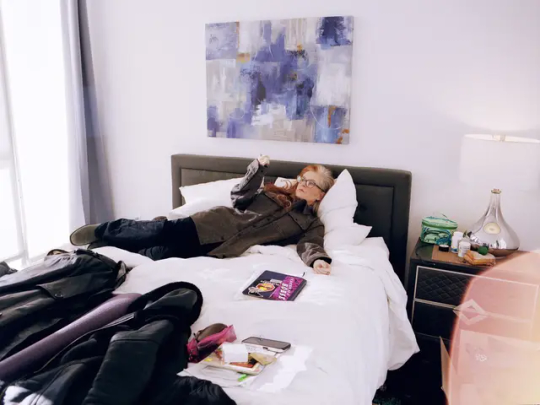
Case’s brief forays down the music industry’s more mainstream avenues made her feel that she didn’t quite belong. In the book, she tells her side of a long-rumored story about the Grand Ole Opry. While playing an outdoor festival on its plaza in July 2001, on the brink of heat stroke, she stripped down to her bra. “It wasn’t an act of punk-rock defiance,” she writes. “I just had an animal need to cool down in any way possible.” The Opry management cut the power and after her truncated set “delivered the classic line,” Case writes, “‘You’ll NEVER play in this town again!’” “I thought about what men had to do to get banned from the Opry,” she writes. Jerry Lee Lewis dropped an expletive on the air. Hank Williams got so wasted, he failed to show up. She eventually chalked the incident up to sexism, but she thinks the situation for female artists in country music is now “worse than it’s ever been.” “Women have actually been demoted,” she said at the diner, pointing to incidents like the so-called “Tomato-gate,” a 2015 controversy in which a radio programmer recommended limiting female artists’ airplay, likening them to “the tomatoes of our salad” in a trade publication. “It’s not true at all,” Case said unequivocally. “People don’t turn off their radios because women come on the radio.” But she has seen firsthand how difficult it is to challenge the full force of the industry. “The gatekeepers are so thick, and they’re everywhere,” she added. “I always feel like people just need to start a new country music.” Over the years she’s done just that, and beyond. Case’s songs have a spaciousness and a sense of possibility that far exceed the confines of genre. Her music is deeply in touch with the expansiveness of the natural world, and that gives her narration a kind of shape-shifting power: She has written songs from the perspective of killer whales and tornadoes, wronged, aching women and gruff, swaggering men.

But does she ever wonder what would have happened if she had been on that promised fast track to success? “I don’t think I would have gone very far,” she admitted, “because I just didn’t have the confidence or the skills yet. I wouldn’t have become really famous and gotten weird or anything. I think I just would have gotten kicked out early.” Instead, over the course of nearly three decades, she’s painstakingly built something more enduring and true to herself. “She’s a person who knows so deeply who she is, and makes no bones about it,” Khouri said. “She’s not a person who is looking at herself and wondering what the world is thinking of her. She’s standing her ground, looking out at the world and saying, ‘Shouldn’t we all be trying to do better?’
#neko case#the harder i fight the more i love you#i knew she was working on a musical 'cause she's been talking about it on her substack- but she never said it's thelma & louise?!#anyway. from everything i know already this memoir's gonna be A Lot#it's not out yet but i'm gonna buy it as soon as possible
26 notes
·
View notes
Text
Vices & Virtues | F1 Masterlist ♡ [ONGOING]
My current hyperfixation combonation between F1 & P!ATD since their breakup has lead me to write one-shots inspired by my favourite album, 'Vices and Virtues.'
This is a work in progress, and I would LOVE to know what one-shot's you'd like to see first! Please REPLY or MESSAGE me and let me know!

The Ballard of Mona List | FA14 (Assistant!Reader)
You’ve been assistant to the driving legend Fernando Alonso for three years now; there is nothing you wouldn’t do for him. When one request leaves both him and you questioning everything, what will happen to your relationship?
Let’s Kill Tonight | DR3 (Singer!Reader)
At the height of your career, you’re invited to perform at the Australian GP performance park. What you’re not aware of is the fact Red Bull’s Daniel Riccardo is quite possibly your biggest fan – not in a creepy way, more of an ‘unrequited love’ way.
Hurricane | LH44 (Royal!Reader)
Lewis Hamilton didn’t expect the highlight of his knighthood to be meeting the Princess. You didn’t expect the highlight of the knighthood to be the man leaving his phone number on a napkin. A secret relationship begins between a princess and a driver.
Memories | LN4 (Journalist!Reader)
You've known Lando for as long as you can remember, the two of you have been inseparable. There has always been a silent promise to be together forever. Sometimes, the world can be cruel and choices inevitably have to be made for you both.
Trade Mistakes | PG10 (SingleMom!Reader)
The worst thing a parent can hear is that their child is in the emergency room. When you find out it was your ex-boyfriend, (her father) who bought them in, will your heart be able to take it?
Ready To Go | CS55 (Student!Reader)
Everybody knows how a holiday romance works; two weeks of passion before the person forgets about you the moment you land back in your home country. What happens when said person shows up on your doorstep with a bouquet of roses and two paddock passes?
Always | CL16 (Chef!Reader) [4.1K, completed]
Neither of you wanted to break up, not truly. No matter where Charles goes, who’s bed he wakes up in or how many times he sees you, he’ll never be able to move on. Will he drop everything the one day you call for help? Of course, he will.
The Calender | GR63 (Actress!Reader)
He promised he would be there. You have always been there for George, on every single day that he needed you, and the days he didn’t think he did. Will he be able to keep his commitment and be there for the biggest night of your career?
Sarah Smiles | SV5 (Engineer!Reader) [3.3K, completed]
You and Sebastian are the same person; ultra-focused on your career and surrounded by a life built and designed especially for you. When your worlds collide, you can’t help but wanting to start letting one another in, maybe the ultimate power couple will be born out of a successful race.
Nearly Witches (Ever Since We Met…) | MV1 (Horner!Reader)
After the untimely divorce of his older brother, Christian Horner welcomes his niece to spend a summer season by his side at Red Bull Racing. Golden Boy, Max Verstappen is infatuated with the girl and wants nothing more than to put a smile back on her face. And possibly her mobile number.
PLEASE let me know if you'd like to be tagged! I can't wait to begin writing these and releasing them all to you, let me know what ones you'd like to see! ♡
#F1#Formula 1#D2S#F1 x Reader#Reader Insert#Charles Leclerc#Charles Leclerc x Reader#Daniel Riccardo#Daniel Riccardo x Reader#Lando Norris#Lando Norris x Reader#Carlos Sainz#Carlos Sainz x Reader#Lewis Hamilton#Lewis Hamilton x Reader#Sebastian Vettel#Sebastian Vettel x Reader#Max Verstappen#Max Verstappen x Reader#Fernando Alonso#Fernando Alonso x Reader#Pierre Gasly#Pierre Gasly x Reader#George Russell#George Russell x Reader
521 notes
·
View notes
Text
WITHIN TEMPTATION Lost Tens Of Thousands Of Instagram Followers Over 'Pride' Post
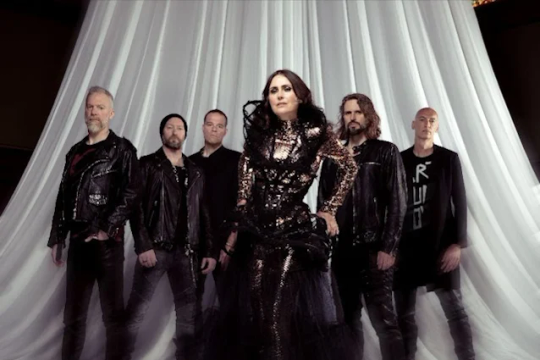
In a new interview with Germany's Radio Bob!, vocalist Sharon Den Adel of Dutch symphonic metallers WITHIN TEMPTATION was asked if she took notice of the fact that the band recently surpassed 400,000 followers on Instagram. She responded (as transcribed by BLABBERMOUTH.NET): "Well, to be honest, I'm not sure if I should say this on radio, but I was a bit shocked of our own audience in a way, because we reached actually 4,2 [420,000] and we lost a two [20,000], because we made an announcement, like, okay, just a post about Pride [the yearly event for acceptance and visibility of the LGBTIQ+ community] in the Netherlands. And we lost 0,2 just by one post saying equality stands for…"
She continued: "I don't care about losing those, but it was a shock to me. So many people were appalled by that message, it's, like, what is the world going to? I was a bit sad about that. It was, like, okay, because you said something about equality and how we see people, how we treat people. Wow. It was a shock… It's reflecting how people are thinking about how things are changing in society sometimes by things you post. It's, like, wow. I didn't see this coming. But anyway, anyway, I'm not regretting it at all. So I'm really happy that it happened because it just cleans up the database. [Laughs] Who cannot stand for equality for everyone? It's, like, come on."
Last December, Den Adel was asked by Mexico's Summa Inferno why it was important for her and her bandmates to voice their political views in some of their recently released songs, including "Wireless" and the title track of their latest album "Bleed Out", which have highlighted such current topics as the war in Ukraine and the suspicious death of Mahsa Amini, an Iranian woman "detained" for not wearing a hijab. She said: "We are musicians. And what do musicians do? They're storytellers, in my opinion. At least that's how I see myself, as a storyteller.
"Back in the day when there were castles, hundreds of years ago, when the musicians were traveling from country to country, what they did is bring the news from one country to another country," she explained. "If there was a war far down South, then half year later, people would know up North because then the musicians came and they make music, telling the stories of what's happening in the world. And I think that essence of being a musician, I think that's important. I think the essence of keeping certain subjects alive in a different way than in the past, of course, but now more like the news goes so fast in our time, because we have Internet and everything, we know what's happening in every country, more or less. And the thing is it becomes old news very fast. But certain things you need to keep addressing and talking about, like what's happening in Iran, for instance, but also the war in the Ukraine, and of course now that what's happening in Gaza and in Israel. Those topics are important to talk about.
"For us, we've written songs about certain of these topics, like Ukraine and Iran," Sharon added. "We did write something about that. We were inspired by that. So that's why we're talking about it in our interviews. And because it becomes old news very quickly here in Europe. I don't know how it's in your country, but nobody talks that much anymore about the Ukraine or what's happening in Iran. Not at all, because it's not in the news anymore. Ukraine is, because we are, of course, supporting them, but in different ways from a European point of view. But Iran, it's already very much old news since Mahsa Amini died because she resisted the morality police and died in a horrible way after being beaten to death, just because she wore her clothes in an incorrect way, to them. And it's very important to talk about these topics because otherwise it becomes old news and their fight is still going on. And that's in many subjects. We could have written about so many things in the world, even about South America where certain things are happening. But these were the things that inspired us when we were in the studio. At that moment, the war broke out in Ukraine. At that moment, Mahsa Amini had just died and we watched the news, and before we knew it, it was integrated in our music. But it could have been also other topics that are just as much needed to be talked about, of course. But these were the things that were happening in the moment when we were writing music."
Asked if she is afraid of the backlash and criticism she and the rest of WITHIN TEMPTATION might receive for publicly voicing their political views, Sharon said: "Well, I believe in democracy. And I think also we have a voice, and I believe in debating. What I hope to do with this — we're not lashing out or criticizing anything. It's more like we try to keep the subject alive because just by talking about it, we can bring other people to new ideas or get a little bit deeper into the subject or start being interested in the subject and thinking about what is the right thing to do. What kind of world do we wanna live in? I think that's a good question. So I'm not afraid of feeling attacked because of the fact that we take a certain point of view because I think… Well, I think it's, that's the thing of democracy. We can all be a voice and we can all contribute to the debate on what kind of world do you wanna live in and what do you accept from each other and what don't we accept from each other. There should be a certain pressure from other countries trying to help certain people in need. And I think it's most important that we support those who are in oppression, who are oppressed, and to let them know there's people thinking about them and supporting them."
youtube
35 notes
·
View notes
Text
Sparks Fly is officially 18 years old: history of a song that was almost lost & how fans saved it from being left in the vault
The night of Halloween 2006, a 16-year-old girl named Taylor Swift had just released her first album. To promote her music, she'd go wherever venues would call her to perform. On October 31st, it was Portland, Oregon's turn, where Taylor opened for Jake Owen in a bar called Duke's. Owen, a country singer who also debuted in 2006, was 25 at the time.
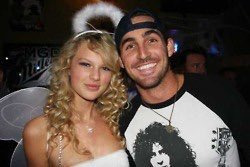
We can safely assume that Taylor was happy to meet Jake, as she wrote this on MySpace right after:
"Happy Halloween :-) Current mood: happy Happy Halloween! I’m sitting at the airport in Portland, Oregon.. About to get on a red-eye flight (Oh yes, I just said red-eye. Meaning, all night. This should be interesting…) to Toronto, Canada for another weekend of Rascal Flatts shows. Tonight was awesome. It was a show in Portland at a bar called Duke’s, I opened up for Jake Owen. And a little back-story, I’ve had his album on repeat for the past couple of months.. It’s an amazing album and I literally cannot stop listening to it. I’ve got every line memorized, and if you see me on a plane.. Chances are, I’m listening to some song off that album, at a volume level that’s probably going to cause long-term hearing damage someday. ANYWAY. I got to walk in on his sound check and meet him. Turns out he’s extremely cool, and had bought my album on iTunes. :-) And since I had to leave after one song of his set, he played my favorite song “8 Second Ride” first. Which is another reason why he’s awesome. And just to let everyone know, YES, I did dress up for Halloween. Yes, I stood onstage in an angel costume with huge wings (that really conflicted with my guitar playing). And I convinced my two guitar players Todd and Kevin to put on those little headbands with the devil ears attached. Haha. Oh yeah, it was great. It’s so awesome playing to a crowd and seeing some people who know the words to EVERY SONG! I love that the album is out, and I love that y'all are listening to it. You guys are so awesome, and I really appreciate all of your comments. I love you all so much. Thanks for everything."
The day Speak Now was announced, a known fan at the time revealed said that the song was written on November 2, 2006, so a couple of day after the Portland show.
The most incredible news is that "Sparks Fly" is going to be put on the album. That song is so incredible. Taylor wrote it on November 2, 2006, performed it live in Oroville on May 30, 2007, and now it is finally being released on October 25, 2010. Definitely a dream come true for Taylor fans worldwide! (X)
So on November 2, 2006 Taylor finished the first of the three known versions of a song called Sparks Fly. The first handwritten draft was showcased in a museum:
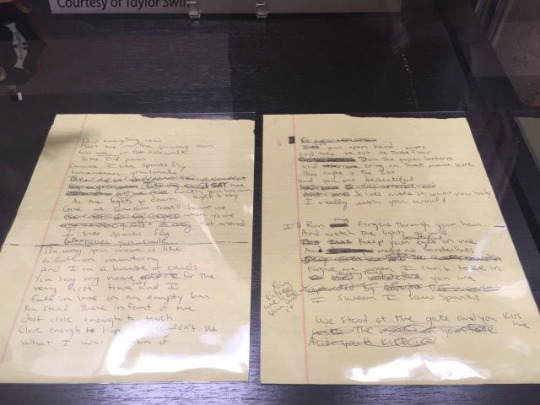
On April 6, 2007, Taylor premiered the song in her native Reading, Pennsylvania, and then sang it again on May 30th in Sacramento, CA. This version was recorded by the same fan that revelead the writing date and uploaded online, gaining traction among the fanbase.
youtube
This live features a very prominent banjo and different lyrics:
“You stand there in front of me” -> “you stood there in front of me”
“Get me with those brown eyes, baby” -> “get me with those green eyes, baby”
“Take your open hand and take me out” -> “reach out open-handed and lead me out”
“Dim the paper lanterns” -> “don’t need more paper lanterns”
“This night is the 31st” -> “my heart is beating fast”
“So let’s make it count now, baby” -> “I could wait patiently”
“I’ll run my fingers” -> “I run my fingers”
“And make no borderlines” -> “gonna strike this match tonight”
“Forgive me when I can’t take in everything you are” -> “and lead me up the staircase”
“You kissed me like you meant it, I swear I saw sparks” -> “I’d love to hate it, but you make it like a firework show”
There was also an additional section: We stood at the gate (and you kiss me) / With the moon on your face / And you’ll kiss me
In December 2007, People Magazine releases a special photoshoot for Taylor's 18th birthday, which features photos of her bedroom, including the infamous Mirror Tracklist, a very early tracklist for her then-unnamed sophomore album. The tracklist inlcudes Sparks Fly as the 6th track.
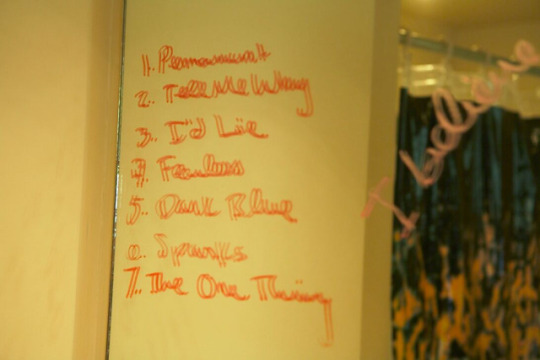
As we know, Sparks Fly ended up being dropped from Fearless and shelved. We actually don't know whether the song was recorded or not, although some sources say that it was, but ended up being excluded in favour of The Way I Loved You.
Throughout the Fearless era, the fans didn't forget about the live version of Sparks Fly. On June 13th, after Taylor premiered the song Mine, Taylor hosted a 13-hour meet & greet, where one of the most asked questions was what happened to Sparks Fly:
“'Sparks Fly' is a song I wrote a few years ago and played in concert. You guys have learned it and I think like it, which makes me really happy. When we did the 13-hour Meet and Greet at the CMA Fest, there was a comment I got over and over again. You guys were saying, 'So what about 'Sparks Fly?' Is it going to be on the next record? [...] I played that song at maybe one or two shows, and you guys just jumped on it and really made it something that I had to put on the album because you really showed interest in it.”
That week Taylor finished Speak Now, completing the last song (The Story Of Us) on the 16th, but taking into consideration what the fans had asked her, she went back to Sparks Fly, changing the lyrics one last time, especially the second verse:
First verse: You say my name for the first time, baby, and I fall in love in an empty bar -> You’re the kind of reckless that should send me runnin’, but I kinda know that I won’t get far.
Second verse: So reach out open-handed and lead me out to that floor / I don’t need more paper lanterns / Take me down, baby / Bring on the movie score / ‘Cause my heart is beating fast and you are beautiful / And I could wait patiently, but I really wish you would... -> My mind forgets to remind me you’re a bad idea / You touch me once and it’s really somethin’ / You find I’m even better than you imagined I would be / I’m on my guard for the rest of the world / But with you, I know it’s no good / And I could wait patiently, but I really wish you would…
Bridge: Just keep your beautiful eyes on me / Gonna strike this match tonight / And lead me up the staircase / Won't you whisper soft and slow / I’d love to hate it, but you make it like a firework show -> Just keep on keepin’ your eyes on me, it’s just wrong enough to make it feel right / And lead me up the staircase / Won't you whisper soft and slow / I'm captivated by you, baby I’m captivated by you baby, like a fireworks show.
I think that the line "I'm on my guard from the rest of the world" from Sparks Fly being written after "And you figure out why I'm guarded" from Mine is very telling of what Taylor was going through in her personal life.
Once the album was out, the secret code hidden in the song lyrics spelled: “Portland, OR”. The secret message seemed to confirm the theories that had followed the song all summer.
In July 2023, Jake Owen commented on being the ispiration behind the song: “It’s a great song and the speculation has always been funny to me. I’m sure Taylor probably laughs at it all too, but I’m happy to even have my name in the discussion around it. She’s an amazing girl and an amazing artist. It’s been incredible to see how she’s grown as a musician and what a global phenomenon she’s become.”
To me, Sparks Fly is a signature song of hers. Classic Swift story telling, sprinkled with teenage dreams in an euphoric rock production. It's really cool to see how fans played a fundamental role to save this song from oblivion. Can you imagine our reaction if we had got this song in the Fearless Vault or the Speak Now Vault?
#taylor swift#sparks fly#writing of fearless timeline#writing of speak now timeline#swiftie fandom history#haven't proofread/reread‚ hope this makes sense lol
21 notes
·
View notes
Text
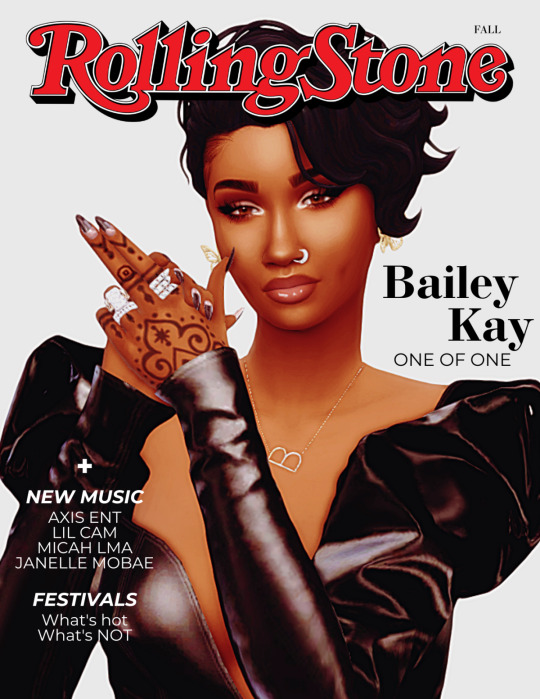

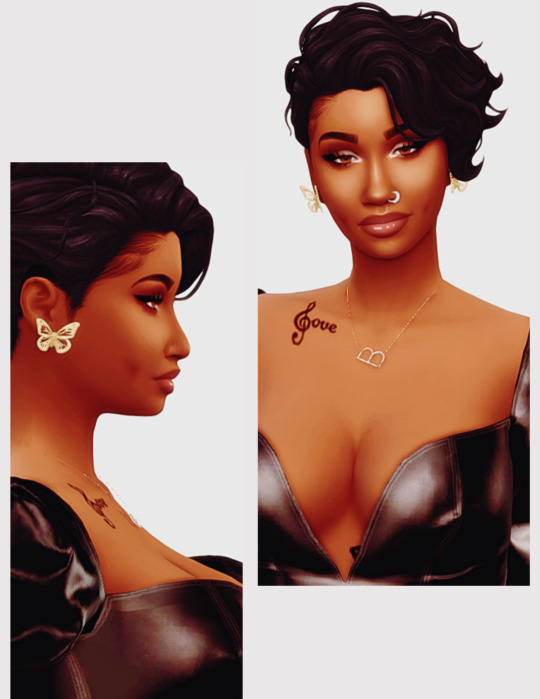
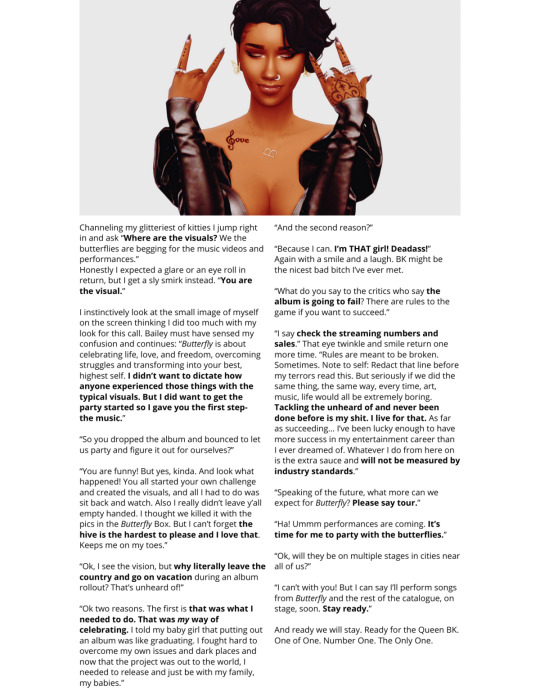
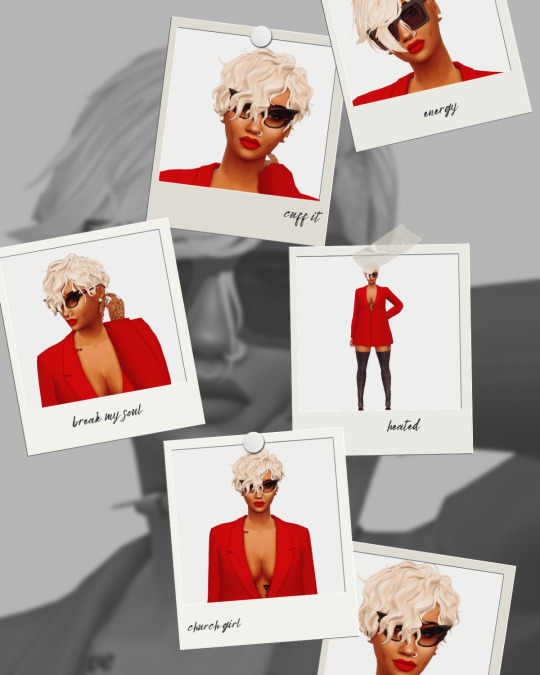

Rolling Stone - Fall Bailey Kay, One of One
-
Shoutout to @soulsimmin for the other musical artists noted on the cover and general Team BK shenanigans. Somebody cut the check.
Article Below
Category: Baaad Bitch
10.59pm The initials BK pop on the screen indicating Bailey Kay has joined the Soom call. The camera flashes on and my heart skips a beat. I hear her soft but firm voice say “Kiss” and another face appears in the view. Bailey’s husband Quinton leans in for a kiss as requested. The two quickly exchange “Love you’s” and adoring looks and then he’s gone as fast as he appeared. Bailey Kay turns to me and I now have her undivided attention. She flashes that gorgeous smile and my heart skips a beat again.
“Sorry. Hi! Thank you for agreeing to meet with me this late. I hope you’re a night owl too.” Absolutely not. I’m normally in bed by 10pm, but who says no to the Queen B when she agrees at the last possible second to her first interview in ages. I awkwardly reply “I am tonight!” and she laughs, exclaiming “I like you!” Phew! Any remaining tension and nerves are gone. Let’s get into this.
Channeling my glitteriest of kitties I jump right in and ask “Where are the visuals? We the butterflies are begging for the music videos and performances.” Honestly I expected a glare or an eye roll in return, but I get a sly smirk instead. “You are the visual”
I instinctively look at the small image of myself on the screen thinking I did too much with my look for this call. Bailey must have sensed my confusion and continues: “Butterfly is about celebrating life, love, and freedom, overcoming struggles and transforming into your best, highest self. I didn’t want to dictate how anyone experienced those things with the typical visuals. But I did want to get the party started so I gave you the first step- the music.”
“So you dropped the album and bounced to let us party and figure it out for ourselves?”
“You are funny! But yes, kinda. And look what happened! You all started your own challenge and created the visuals, and all I had to do was sit back and watch. Also I really didn’t leave y’all empty handed. I thought we killed it with the pics in the Butterfly Box. But I can’t forget the hive is the hardest to please and I love that. Keeps me on my toes.”
“Ok, I see the vision, but why literally leave the country and go on vacation during an album rollout? That’s unheard of!”
“Ok two reasons. The first is that was what I needed to do. That was my way of celebrating. I told my baby girl that putting out an album was like graduating. I fought hard to overcome my own issues and dark places and now that the project was out to the world, I needed to release and just be with my family, my babies.”
“And the second?”
“Because I can. I’m THAT girl! Deadass!” Again with a smile and a laugh. BK might be the nicest bad bitch I’ve ever met.
“What do you say to the critics who say the album is going to fail? There are rules to the game if you want to succeed.”
“I say check the streaming numbers and sales.” That eye twinkle and smile return one more time. “Rules are meant to be broken. Sometimes. Note to self: Redact that line before my terrors read this. But seriously if we did the same thing, the same way, every time, art, music, life would all be extremely boring. Tackling the unheard of and never been done before is my shit. I live for that. As far as succeeding… I’ve been lucky enough to have more success in my entertainment career than I ever dreamed of. Whatever I do from here on is the extra sauce and will not be measured by industry standards.”
“Speaking of the future, what more can we expect for Butterfly? Please say tour.”
“Ha! Ummm performances are coming. It’s time for me to party with the butterflies.”
“Ok, will they be on multiple stages in cities near all of us?”
“I can't with you! But I can say I’ll perform songs from Butterfly and the rest of the catalogue, on stage, soon. Stay ready.”
And ready we will stay. Ready for the Queen BK. One of One. Number One. The Only One.
#extra extra quota filled for the week LOL#cover girl is back#need to update the magazine cc#bklegacy#bklgen2#bailey kay
162 notes
·
View notes
Text
From 2010- Modest Management Suck
2012
Part 20
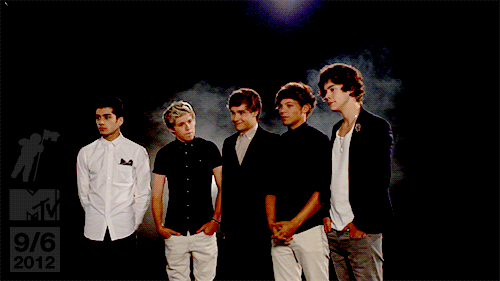
“We’re about to go out and do some signing” Harry says to the camera
“We’re at Natick Mall in Boston. It’s gonna be really fun, we’ve heard there’s loads and loads of people and we’re very very excited” Niall says as I laugh at Louis pretending to walk down stairs behind us
“Let’s go!” Liam and Harry shout at the same time. We stand behind a door waiting for it to open
“Anyone else feeling nervous?” I ask feeling a slight tingling in my toes and fingers. I can also feel my heart racing
“It’s excitement, you’ll be fine” I hear Richard say. Nodding my head I watch the doors open and I put a smile on my face. I walk behind Harry and in front of Niall just trying to focus on my breathing as we walk through the Mall where so many people are screaming. We all sit down shocked that this many people have come out to see us. The security then let the fans in small groups come over to us. We sigh the books that we had released late last year.
Throughout the whole time I try to keep smiling and my heart racing at bay, but I can always count on my boys for noticing when somethings off. So when we have a little break for something to eat I sit down on the sofa breathing in deeply
“What’s up?” Louis asks frowning as he sits next to me
“I don’t know, my chest hurts” I almost sob “I- I can’t stop shaking, but I’m not cold I’m really warm”
“Paul I don’t think YN should go back out there” Liam says
“No, but Simon…”
“Fuck Simon and what he says” Niall says sitting on my other side
“She’s going out there even if I have to drag her out there” Richard crosses his arms
“Look at her, she can barley breathe” Paul defends
“I think this is makin’ her worse” Harry kneels down and takes a shaking hand in his and gives it a squeeze of reassurance
“She’s going out there and that’s final” with that Richard leaves the room
“Hey jus’ look at me and breath with me” I try to match Harry’s breathing to calm myself down.

Another day another performance. This time is for the Today Show. We arrive on a bus which stops at the Rockefeller Plaza. We all jump off and run to the stage as music is already playing
“New York City make some noise!” Harry yells into his microphone. Immediately WMYB starts playing
“You're insecure, don't know what for. You're turnin' heads when you walk through the door. Don't need makeup to cover up. Bein' the way that you are is enough” Liam starts singing. Harry then turns to look at me and gives me a little encouraging smile since I’ve been feeling so worried and stressed recently
“Everyone else in the room can see it. Everyone else but you”
We all sing the chorus, then it’s Zayn’s turn then mine
“I don't know why you're being shy and turn away when I look into your eyes”…
“One Directions first album has hit number 1 in 6 countries and they could make it 7 this week when Up All Night is released here in the United States. One Direction is Zayn Malik, Niall Horan, Harry Styles, Liam Payne, Louis Tomlinson and YN YLN. Good morning guys”
“Morning” we all say in unison
“What do you like best about American girls?” the interviewer asks and I roll my eyes at the question. I then spot Richard off to the side shaking his head at me
“They’re very very loud” Liam says which causes everyone to scream
“YN what’s it like for you? Your living every girls dream right now being close to these boys all of the time”
“Your right I am living my dream, but it’s being on stage and singing. I’m just lucky I get to do that with these guys I can call family” I reply
“What’s the best and worst part of this sudden fame?”
“I think for me and I know these guys will probably agree, but I’ve made 5 best friends” Zayn says “the only down side would be that we don’t get to see our friends and family as much” or that our every move is controlled, is what I would love to have added on. We continue on the interview and sing a few more songs.

I stand next to Louis and Harry while our choreographer puts us in our places for rehearsals for the Kids Choice Awards
“I want YN and Zayn to switch” Richard says hands on his hips “we can’t afford more cheating rumours so during this song you have to stay away from each other”
“And what happens when the press say YN and Liam are dating or YN and Niall?” Zayn asks
“We will deal with that if it happens. Harry I’m looking into getting you and Taylor Swift together. Boots both of your careers”
“Are you serious?” Zayn raises his eyebrow “this is ridiculous” he huffs
“Simons wishes, keep rehearsing” Richard then leaves us to carry on rehearsals. I take in a deep breath just as I feel an arm around my shoulder. I look up to see Zayn
“I know, me to” neither Zayn or I have ever liked Richard, but we’ve always tried to keep the peace but it’s getting harder and harder.
#harry styles x y/n#harry styles x you#harry styles x reader#harry styles x oc#harry styles imagine#harry styles fanfiction#harry styles#6th one direction member#sixth one direction member#one direction x reader#one direction
69 notes
·
View notes
Text
nine albums that got me through 2024
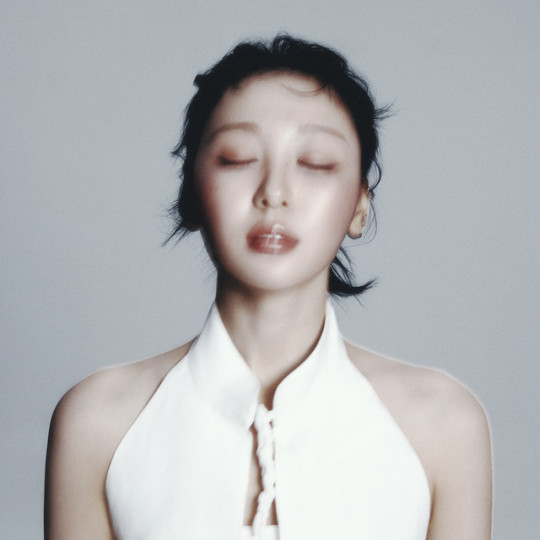

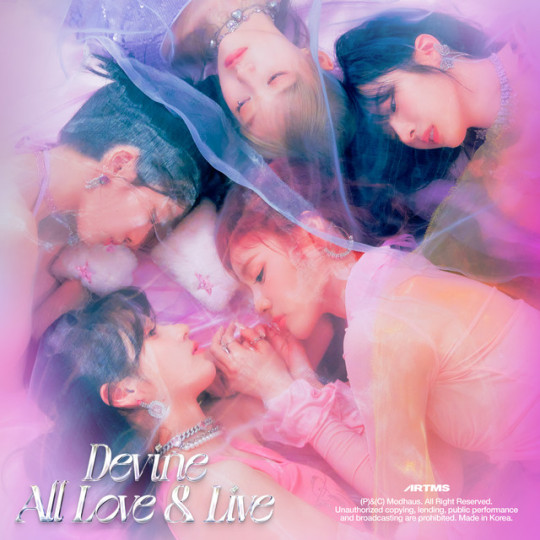

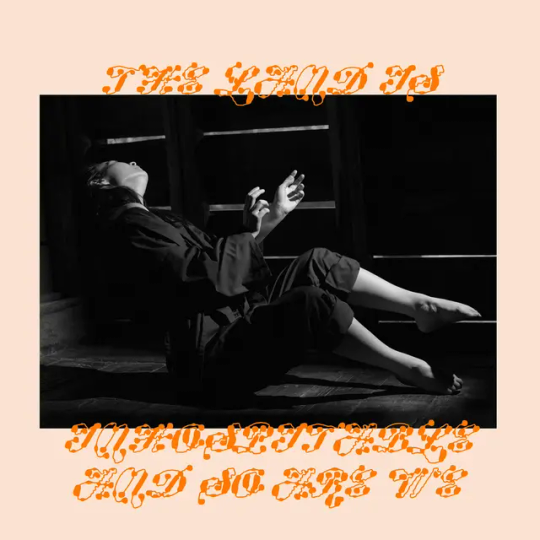
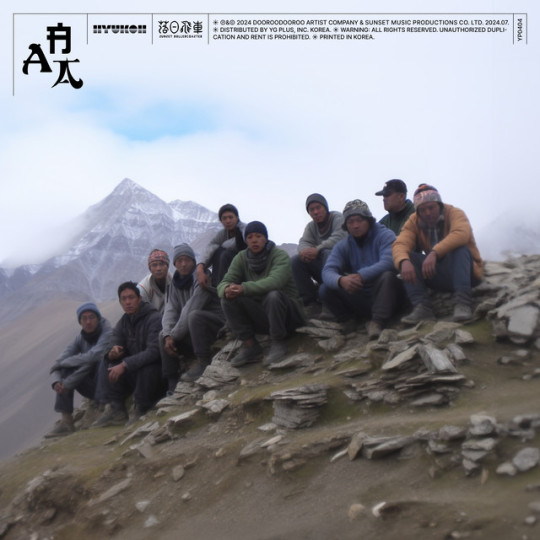

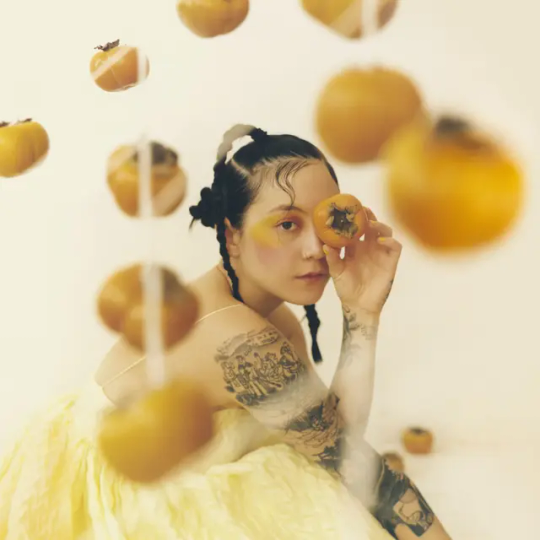

tagged by @yvesbuprofen thank you! have I mentioned how much i love your url btw cos i do cannot get over how good it is whenever i see it
So a large part of the reasonings for some of these is gonna be concerts + yes all the loona girls getting a spot here
i did - yves: not to be parasocial but yves was honestly a large part in getting me through the winter, her releases this year have been amazing and having her concerts to look forward to had me pushing through everything I had going on & getting to meet her multiple times after being a fan for 7 years was wild. her newest album is so good and i don't think i can explain how some of the tracks on that emotionally resonate with me with dim maybe being one of my fave releases.
ttyl - loossemble: this album was such a great showing of the girls talents, you could really just see them shine and how happy they were performing and showing it off just filled with upbeat bops also that just made me happy.
dall - artms: deciding last minute to go to their concert despite my anxieties and such was such a correct choice it really dug me out of a hole i'd fallen into at the time and seeing them perform this album was amazing, the tracks are so joyful to me (& like w/ yves interacting w/ lip & choerry was just <3).
howl - chuu: while loving her strawberry rush release this yr & how upbeat it made me I think I ended up gravitating towards the howl tracks for comfort a lot more especially aliens <3.
the land is inhospitable and so are we - mitski: I've gone to see mitski nearly everytime she tours in ireland since her first show in 2016 with a tiny audience with the same 2 friends each time, so after they immigrated this year it was very melancholic to go to her dublin show alone & then very emotional to travel to see her concert with those 2 friends in the new country where they're based + seeing the growth of her music and performance from then to now really felt like the culmination of some personal things for me that persisted every time i listened to this album through the year.
aaa - hyukoh & sunset rollercoaster: this one is just an album that I had on a lot tho usually in parts with about half of the songs on this exactly being the type of music that can get me through doing mundane tasks and the other half being music that would just help me sleep
sink - sudan archives: just a hypnotic stunning album great for relaxing, do yourself a favour and listen to her tiny desk the way she uses that violin is just fantastic 'nont for sale' a fave.
jubilee - japanese breakfast: yeah this one esp 'posing In bondage' is just another one of those that would relax me a lot it was very much a just a late night repeat play many a times.
adventure - momoko kikuchi: I have this on cassette and anytime I needed a break from my phone or just being online at all (which was a fair few times) I'd end up popping this on and forgetting everything else.
tag if you'd like: @staghunters @blastburnt @elizabeth-mitchells @kdramamilfs @everyoneisrelevant
#some of these explanations may be a bit tmi even after cutting some things i wanted to say but well#this ended up quite long anyway so i doubt it many ppl will read it so it's fine -if you do read enjoy the tmi i guess#Also yeah I went to chappell concerts this yr also and could have put them on the list but idk weird something in the back of my head can’t#the b sides#tag#2024 felt like a big music yr for me as in like category of media i leaned the most on#& not that anyone asked but 2023 was probably a tv show yr & 2022 was books#(Film doesn't count cos that's consistent considering for both 2022 & 2023 I had watched nearly 900 movies)
9 notes
·
View notes
Text
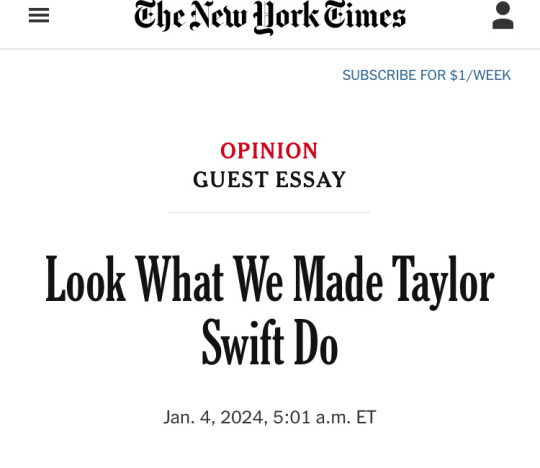
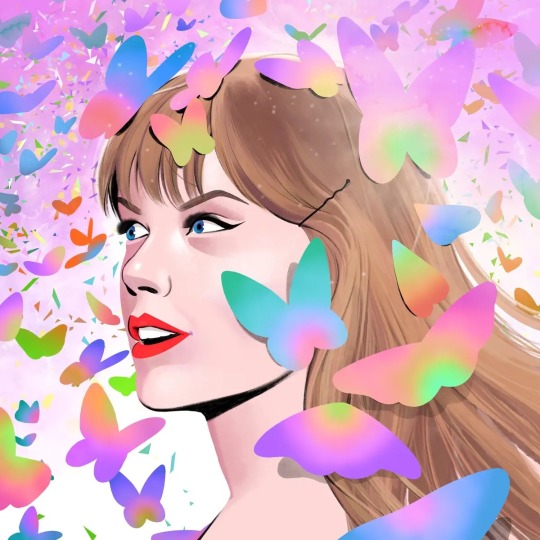
In 2006, the year Taylor Swift released her first single, a closeted country singer named Chely Wright, then 35, held a 9-millimeter pistol to her mouth. Queer identity was still taboo enough in mainstream America that speaking about her love for another woman would have spelled the end of a country music career. But in suppressing her identity, Ms. Wright had risked her life.
In 2010, she came out to the public, releasing a confessional memoir, “Like Me,” in which she wrote that country music was characterized by culturally enforced closeting, where queer stars would be seen as unworthy of investment unless they lied about their lives. “Country music,” she wrote, “is like the military — don’t ask, don’t tell.”
The culture in which Ms. Wright picked up that gun — the same one in which Ms. Swift first became a star — was stunningly different from today’s. It’s dizzying to think about the strides that have been made in Americans’ acceptance of the L.G.B.T.Q. community over the past decade: marriage equality, queer themes dominating teen entertainment, anti-discrimination laws in housing and, for now, in the workplace. But in recent years, a steady drip of now-out stars — Cara Delevingne, Colton Haynes, Elliot Page, Kristen Stewart, Raven-Symoné and Sam Smith among them — have disclosed that they had been encouraged to suppress their queerness in order to market projects or remain bankable.
The culture of country music hasn’t changed so much that homophobia is gone. Just this past summer, Adam Mac, an openly gay country artist, was shamed out of playing at a festival in his hometown because of his sexual orientation. In September, the singer Maren Morris stepped away from country music; she said she did so in part because of the industry’s lingering anti-queerness. If country music hasn’t changed enough, what’s to say that the larger entertainment industry — and, by extension, our broader culture — has?
Periodically, I return to a video, recorded by a shaky hand more than a decade ago, of Ms. Wright answering questions at a Borders bookstore about her coming out. She likens closeted stardom to a blender, an “insane” and “inhumane” heteronormative machine in which queer artists are chewed to bits.
“It’s going to keep going,” Ms. Wright says, “until someone who has something to lose stands up and just says ‘I’m gay.’ Somebody big.” She continues: “We need our heroes.”
What if someone had already tried, at least once, to change the culture by becoming such a hero? What if, because our culture had yet to come to terms with homophobia, it wasn’t ready for her?
What if that hero’s name was Taylor Alison Swift?
In the world of Taylor Swift, the start of a new “era” means the release of new art (an album and the paratexts — music videos, promotional ephemera, narratives — that supplement it) and a wholesale remaking of the aesthetics that will accompany its promotion, release and memorializing. In recent years, Ms. Swift has dominated pop culture to such a degree that these transformations often end up altering American culture in the process.
In 2019, she was set to release a new album, “Lover,” the first since she left Big Machine Records, her old Nashville-based label, which she has since said limited her creative freedom. The aesthetic of what would be known as the “Lover Era” emerged as rainbows, butterflies and pastel shades of blue, purple and pink, colors that subtly evoke the bisexual pride flag.
On April 26, Lesbian Visibility Day, Ms. Swift released the album’s lead single, “ME!,” in which she sings about self-love and self-acceptance. She co-directed a campy music video to accompany it, which she would later describe as depicting “everything that makes me, me.” It features Ms. Swift dancing at a pride parade, dripping in rainbow paint and turning down a man’s marriage proposal in exchange for a … pussy cat.
At the end of June, the L.G.B.T.Q. community would celebrate the 50th anniversary of the Stonewall Riots. On June 14, Ms. Swift released the video for her attempt at a pride anthem, “You Need to Calm Down,” in which she and an army of queer celebrities from across generations — the “Queer Eye” hosts, Ellen DeGeneres, Billy Porter, Hayley Kiyoko, to name a few — resist homophobia by living openly. Ms. Swift sings that outrage against queer visibility is a waste of time and energy: “Why are you mad, when you could be GLAAD?”
The video ends with a plea: “Let’s show our pride by demanding that, on a national level, our laws truly treat all of our citizens equally.” Many, in the press and otherwise, saw the video as, at best, a misguided attempt at allyship and, at worst, a straight woman co-opting queer aesthetics and narratives to promote a commercial product.
Then, Ms. Swift performed “Shake It Off” as a surprise for patrons at the Stonewall Inn. Rumors — that were, perhaps, little more than fantasies — swirled in the queerer corners of her fandom, stoked by a suggestive post by the fashion designer Christian Siriano. Would Ms. Swift attend New York City’s WorldPride march on June 30? Would she wear a dress spun from a rainbow? Would she give a speech? If she did, what would she declare about herself?
The Sunday of the march, those fantasies stopped. She announced that the music executive Scooter Braun, who she described as an “incessant, manipulative” bully, had purchased her masters, the lucrative original recordings of her work.
Ms. Swift’s “Lover” was the first record that she created with nearly unchecked creative freedom. Lacking her old label’s constraints, she specifically chose to feature activism for and the aesthetics of the L.G.B.T.Q. community in her confessional, self-expressive art. Even before the sale of her masters, she appeared to be stepping into a new identity — not just an aesthetic — that was distinct from that associated with her past six albums.
When looking back on the artifacts of the months before that album’s release, any close reader of Ms. Swift has a choice. We can consider the album’s aesthetics and activism as performative allyship, as they were largely considered to be at the time. Or we can ask a question, knowing full well that we may never learn the answer: What if the “Lover Era” was merely Ms. Swift’s attempt to douse her work — and herself — in rainbows, as so many baby queers feel compelled to do as they come out to the world?
There’s no way of knowing what could have happened if Ms. Swift’s masters hadn’t been sold. All we know is what happened next. In early August, Ms. Swift posted a rainbow-glazed photo of a series of friendship bracelets, one of which says “PROUD” with beads in the color of the bisexual pride flag. Queer people recognize that this word, deployed this way, typically means that someone is proud of their own identity. But the public did not widely view this as Ms. Swift’s coming out.
Then, Vogue released an interview with Ms. Swift that had been conducted in early June. When discussing her motivations for releasing “You Need to Calm Down,” Ms. Swift said, “Rights are being stripped from basically everyone who isn’t a straight white cisgender male.” She continued: “I didn’t realize until recently that I could advocate for a community that I’m not a part of.” That statement suggests that Ms. Swift did not, in early June, consider herself part of the L.G.B.T.Q. community; it does not illuminate whether that is because she was a straight, cis ally or because she was stuck in the shadowy, solitary recesses of the closet.
On Aug. 22, Ms. Swift publicly committed herself to the as-of-then-unproven project of rerecording and rereleasing her first six albums. The next day, she finally released “Lover,” which raises more questions than it answers. Why does she have to keep secrets just to keep her muse, as all her fans still sing-scream on “Cruel Summer”? About what are the “hundred thrown-out speeches I almost said to you,” in her chronicle of self-doubt, “The Archer,” if not her identity? And what could the album’s closing words, which come at the conclusion of “Daylight,” a song about stepping out of a 20-year darkness and choosing to “let it go,” possibly signal?
I want to be defined by the things that I love,
Not the things I hate,
Not the things that I’m afraid of, I’m afraid of,
Not the things that haunt me in the middle of the night,
I just think that,
You are what you love.
The first time I viewed “Lover” through the prism of queerness, I felt delirious, almost insane. I kept wondering whether what I was perceiving in her work was truly there or if it was merely a mirage, born of earnest projection.
My longtime reading of Ms. Swift’s celebrity — like that of a majority of her fan base — had been stuck in the lingering assumptions left by a period that began more than a decade and a half ago, when a girl with an overexaggerated twang, Shirley Temple curls and Georgia stars in her eyes became famous. Then, she presented as all that was to be expected of a young starlet: attractive yet virginal, knowing yet naïve, not talented enough to be formidable, not commanding enough to be threatening, confessional, eager to please. Her songs earnestly depicted the fantasies of a girl raised in a traditional culture: high school crushes and backwoods drives, princelings and wedding rings, declarations of love that climax only in a kiss — ideally in the pouring rain.
When Ms. Swift was trying to sell albums in that late-2000s media environment, her songwriting didn’t match the image of a sex object, the usual role reserved for female celebrities in our culture. Instead, the story the public told about her was that she laundered her affection to a litter of promising grown men, in exchange for songwriting inspiration. A young Ms. Swift contributed to this narrative by hiding easy-to-decode clues in liner notes that suggested a certain someone was her songs’ inspiration (“SAM SAM SAM SAM SAM SAM,” “ADAM,” “TAY”) or calling out an ex-boyfriend on the “Ellen” show and “Saturday Night Live.” Despite the expansive storytelling in Ms. Swift’s early records, her public image often cast a man’s interest as her greatest ambition.
As Ms. Swift’s career progressed, she began to remake that image: changing her style and presentation, leaving country music for pop and moving from Nashville to New York. By 2019, her celebrity no longer reflected traditional culture; it had instead become a girlboss-y mirror for another dominant culture — that of white, cosmopolitan, neoliberal America.
But in every incarnation, the public has largely seen those songs — especially those for which she doesn’t directly state her inspiration — as cantos about her most recent heterosexual love, whether that idea is substantiated by evidence or not. A large portion of her base still relishes debating what might have happened with the gentleman caller who supposedly inspired her latest album. Feverish discussions of her escapades with the latest yassified London Boy or mustachioed Mr. Americana fuel the tabloid press — and, embarrassingly, much of traditional media — that courts fan engagement by relentlessly, unquestioningly chronicling Ms. Swift’s love life.
Even in 2023, public discussion about the romantic entanglements of Ms. Swift, 34, presumes that the right man will “finally” mean the end of her persistent husbandlessness and childlessness. Whatever you make of Ms. Swift’s extracurricular activities involving a certain football star (romance for the ages? strategic brand partnership? performance art for entertainment’s sake?), the public’s obsession with the relationship has been attention-grabbing, if not lucrative, for all parties, while reinforcing a story that America has long loved to tell about Ms. Swift, and by extension, itself.
Because Ms. Swift hasn’t undeniably subverted our culture’s traditional expectations, she has managed, in an increasingly fractured cultural environment, to simultaneously capture two dominant cultures — traditional and cosmopolitan. To maintain the stranglehold she has on pop culture, Ms. Swift must continue to tell a story that those audiences expect to consume; she falls in love with a man or she gets revenge. As a result, her confessional songs languish in a place of presumed stasis; even as their meaning has grown deeper and their craft more intricate, a substantial portion of her audience’s understanding of them remains wedded to the same old narratives.
But if interpretations of Ms. Swift’s art often languish in stasis, so do the millions upon millions of people who love to play with the dollhouse she has constructed for them. Her dominance in pop culture and the success of her business have given her the rare ability to influence not only her industry but also the worldview of a substantial portion of America. How might her industry, our culture and we, ourselves, change if we made space for Ms. Swift to burn that dollhouse to the ground?
Anyone considering the whole of Ms. Swift’s artistry — the way that her brilliantly calculated celebrity mixes with her soul-baring art — can find discrepancies between the story that underpins her celebrity and the one captured by her songs. One such gap can be found in her “Lover” era. Others appear alongside “dropped hairpins,” or the covert ways someone can signal queer identity to those in the know while leaving others comfortable in their ignorance. Ms. Swift dropped hairpins before “Lover” and has continued to do so since.
Sometimes, Ms. Swift communicates through explicit sartorial choices — hair the colors of the bisexual pride flag or a recurring motif of rainbow dresses. She frequently depicts herself as trapped in glass closets or, well, in regular closets. She drops hairpins on tour as well, paying tribute to the Serpentine Dance of the lesbian artist Loie Fuller during the Reputation Tour or referencing “The Ladder,” one of the earliest lesbian publications in the United States, in her Eras Tour visuals.
Dropped hairpins also appear in Ms. Swift’s songwriting. Sometimes, the description of a muse — the subject of her song, or to whom she sings — seems to fit only a woman, as it does in “It’s Nice to Have a Friend,” “Maroon” or “Hits Different.” Sometimes she suggests a female muse through unfulfilled rhyme schemes, as she does in “The Very First Night,” when she sings “didn’t read the note on the Polaroid picture / they don’t know how much I miss you” (“her,” instead of that pesky little “you,” would rhyme). Her songwriting also noticeably alludes to poets whose muses the historical record incorrectly cast as men — Emily Dickinson chief among them — as if to suggest the same fate awaits her art. Stunningly, she even explicitly refers to dropping hairpins, not once, but twice, on two separate albums.
In isolation, a single dropped hairpin is perhaps meaningless or accidental, but considered together, they’re the unfurling of a ballerina bun after a long performance. Those dropped hairpins began to appear in Ms. Swift’s artistry long before queer identity was undeniably marketable to mainstream America. They suggest to queer people that she is one of us. They also suggest that her art may be far more complex than the eclipsing nature of her celebrity may allow, even now.
Since at least her “Lover” era, Ms. Swift has explicitly encouraged her fans to read into the coded messages (which she calls “Easter eggs”) she leaves in music videos, social media posts and interviews with traditional media outlets, but a majority of those fans largely ignore or discount the dropped hairpins that might hint at queer identity. For them, acknowledging even the possibility that Ms. Swift could be queer would irrevocably alter the way they connect with her celebrity, the true product they’re consuming.
There is such public devotion to the traditional narrative Ms. Swift embodies because American culture enshrines male power. In her sweeping essay, “Compulsory Heterosexuality and Lesbian Existence,” the lesbian feminist poet Adrienne Rich identified the way that male power cramps, hinders or devalues women’s creativity. All of the sexist undertones with which Ms. Swift’s work can be discussed (often, even, by fans) flow from compulsory heterosexuality, or the way patriarchy draws power from the presumption that women naturally desire men. She must write about men she surely loves or be unbankable; she must marry and bear children or remain a child herself; she must look like, in her words, a “sexy baby” or be undesirable, “a monster on the hill.”
A woman who loves women is most certainly a monster to a society that prizes male power. She can fulfill none of the functions that a traditional culture imagines — wife, mother, maid, mistress, whore — so she has few places in the historical record. The Sapphic possibility of her work is ignored, censored or lost to time. If there is queerness earnestly implied in Ms. Swift’s work, then it’s no wonder that it, like that of so many other artists before her, is so often rendered invisible in the public imagination.
While Ms. Swift’s songs, largely written from her own perspective, cannot always conform to the idea of a woman our culture expects, her celebrity can. That separation, between Swift the songwriter and Swift the star, allows Ms. Swift to press against the golden birdcage in which she has found herself. She can write about women’s complexity in her confessional songs, but if ever she chooses not to publicly comply with the dominant culture’s fantasy, she will remain uncategorizable, and therefore, unsellable.
Her star — as bright as it is now — would surely dim.
Whether she is conscious of it or not, Ms. Swift signals to queer people — in the language we use to communicate with one another — that she has some affinity for queer identity. There are some queer people who would say that through this sort of signaling, she has already come out, at least to us. But what about coming out in a language the rest of the public will understand?
The difference between any person coming out and a celebrity doing so is the difference between a toy mallet and a sledgehammer. It’s reasonable for celebrities to be reticent; by coming out, they potentially invite death threats, a dogged tabloid press that will track their lovers instead of their beards, the excavation of their past lives, a torrent of public criticism and the implosion of their careers. In a culture of compulsory heterosexuality, to stop lying �� by omission or otherwise — is to risk everything.
American culture still expects that stars are cis and straight until they confess themselves guilty. So, when our culture imagines a celebrity’s coming out, it expects an Ellen-style announcement that will submerge the past life in phoenix fire and rebirth the celebrity in a new image. In an ideal culture, wearing a bracelet that says “PROUD,” waving a pride flag onstage, placing a rainbow in album artwork or suggestively answering fan questions on Instagram would be enough. But our current reality expects a supernova.
Because of that expectation, stars end up trapped behind glass, which is reinforced by the tabloid press’s subtle social control. That press shapes the public’s expectations of others’ identities, even when those identities are chasms away from reality. Celebrities who master this press environment — Ms. Swift included — can bolster their business, but in doing so, they reinforce a heteronormative culture that obsesses over pregnancy, women’s bodies and their relationships with men.
That environment is at odds with the American movement for L.G.B.T.Q. equality, which still has fights to win — most pressingly, enshrining trans rights and squashing nonsensical culture wars. But lately I’ve heard many of my young queer contemporaries — and the occasional star — wonder whether the movement has come far enough to dispense with the often messy, often uncomfortable process of coming out, over and over again.
That questioning speaks to an earnest conundrum that queer people confront regularly: Do we live in this world, or the world to which we ought to aspire?
Living in aspiration means ignoring the convention of coming out in favor of just … existing. This is easier for those who can pass as cis and straight if need be, those who are so wealthy or white that the burden of hiding falls to others and those who live in accepting urban enclaves. This is a queer life without friction; coming out in a way straight people can see is no longer a prerequisite for acceptance, fulfillment and equality.
This aspiration is tremendous, but in our current culture, it is available only to a privileged few. Should such an inequality of access to aspiration become the accepted state of affairs, it would leave those who can’t hide to face society’s cruelest actors without the backing of a vocal, activated community. So every queer person who takes issue with the idea that we must come out ought to ask a simple question — what do we owe one another?
If coming out is primarily supposed to be an act of self-actualization, to form our own identities, then we owe one another nothing. This posture recognizes that the act of coming out implicitly reinforces straight and cis identities as default, which is not worth the rewards of outness.
But if coming out is supposed to be a radical act of resistance that seeks to change the way our society imagines people to be, then undeniable visibility is essential to make space for those without power. In this posture, queer people who can live in aspiration owe those who cannot a real world in which our expansive views of love and gender aren’t merely tolerated but celebrated. We have no choice but to actively, vocally press against the world we’re in, until no one is stuck in it.
And so just for a little while longer, we need our heroes.
But if queer people spend all of our time holding out for a guiding light, we might forgo a more pressing question that if answered, just might inch all of us a bit closer to aspiration. The next time heroes appear, are we ready to receive them?
It takes neither a genius nor a radical to see queerness implied by Ms. Swift’s work. But figuring out how to talk about it before the star labels herself is another matter. Right now, those who do so must inject our perceptions with caveats and doubt or pretend we cannot see it (a lie!) — implicitly acquiescing to convention’s constraints in the name of solidarity.
Lying is familiar to queer people; we teach ourselves to do it from an early age, shrouding our identities from others, and ourselves. It’s not without good reason. To maintain the safety (and sometimes the comfort) of the closet, we lie to others, and, most crucially, we allow others to believe lies about us, seeing us as something other than ourselves. Lying is doubly familiar to those of us who are women. To reduce friction, so many of us still shrink life to its barest version in the name of honor or safety, rendering our lives incomplete, our minds lobotomized and our identities unexplored.
By maintaining a culture of lying about what we, uniquely, have the knowledge and experience to see, we commit ourselves to a vow of silence. That vow may protect someone’s safety, but when it is applied to works of culture, it stymies our ability to receive art that has the potential to change or disrupt us. As those with queer identity amass the power of commonplaceness, it’s worth questioning whether the purpose of one of the last great taboos that constrains us befits its cost.
In every case, is the best form of solidarity still silence?
I know that discussing the potential of a star’s queerness before a formal declaration of identity feels, to some, too salacious and gossip-fueled to be worthy of discussion. They might point to the viciousness of the discourse around “queerbaiting” (in which I have participated); to the harm caused by the tabloid press’s dalliances with outing; and, most crucially, to the real material sacrifices that queer stars make to come out, again and again, as reasons to stay silent.
I share many of these reservations. But the stories that dominate our collective imagination shape what our culture permits artists and their audiences to say and be. Every time an artist signals queerness and that transmission falls on deaf ears, that signal dies. Recognizing the possibility of queerness — while being conscious of the difference between possibility and certainty — keeps that signal alive.
So, whatever you make of Ms. Swift’s sexual orientation or gender identity (something that is knowable, perhaps, only to her) or the exact identity of her muses (something better left a mystery), choosing to acknowledge the Sapphic possibility of her work has the potential to cut an audience that is too often constrained by history, expectation and capital loose from the burdens of our culture.
To start, consider what Ms. Swift wrote in the liner notes of her 2017 album, “reputation”: “When this album comes out, gossip blogs will scour the lyrics for the men they can attribute to each song, as if the inspiration for music is as simple and basic as a paternity test.”
Listen to her. At the very least, resist the urge to assume that when Ms. Swift calls the object of her affection “you” in a song, she’s talking about a man with whom she’s been photographed. Just that simple choice opens up a world of Swiftian wordplay. She often plays with pronouns, trading “you” and “him” so that only someone looking for a distinction between two characters might find one. Turns of phrase often contain double or even triple meanings. Her work is a feast laid specifically for the close listener.
Choosing to read closely can also train the mind to resist the image of an unmarried woman that compulsory heterosexuality expects. And even if it is only her audience who points at rainbows, reading Ms. Swift’s work as queer is still worthwhile, for it undermines the assumption that queer identity impedes pop superstardom, paving the way for an out artist to have the success Ms. Swift has.
After all, would it truly be better to wait to talk about any of this for 50, 60, 70 years, until Ms. Swift whispers her life story to a biographer? Or for a century or more, when Ms. Swift’s grandniece donates her diaries to some academic library, for scholars to pore over? To ensure that mea culpas come only when Ms. Swift’s bones have turned to dust and fragments of her songs float away on memory’s summer breeze?
I think not. And so, I must say, as loudly as I can, “I can see you,” even if I risk foolishness for doing so.
I remember the first time I knew I had seen Taylor Alison Swift break free from the trap of stardom. I wasn’t sitting in a crowded stadium in the pouring rain or cuddled up in a movie theater with a bag of popcorn. I was watching a grainy, crackling livestream of the Eras Tour, captured on a fan’s phone.
It’s late at night, the beginning of her acoustic set of surprise songs, this time performed in a yellow dress. She begins playing “Hits Different.” It’s a new song, full of puns, double entendres and wordplay, that toys with the glittering identities in which Ms. Swift indulges.
She’s rushing, as if stopping, even for a second, will cause her to lose her nerve. She stumbles at the bridge, pauses and starts again; the queen of bridges will not mess this up, not tonight.
There it is, at the bridge’s end: “Bet I could still melt your world; argumentative, antithetical dream girl.” An undeniable declaration of love to a woman. As soon as those words leave her lips, she lets out a whoop, pacing around the stage with a grin that cannot be contained.
For a moment, Ms. Swift was out of the woods she had created for herself as a teenager, floating above the trees. The future was within reach; she would, and will, soon take back the rest of her words, her reputation, her name. Maybe the world would see her, maybe it wouldn’t.
But on that stage, she found herself. I was there. Through a fuzzy fancam, I saw it.
And somehow, that was everything.
#nyt x Gaylor swift#Gaylor swift x the msm#mainstream media x gaylor swift#gaylor fandom#Swiftgron#Taymily#tily#the New York Times article
28 notes
·
View notes
Text
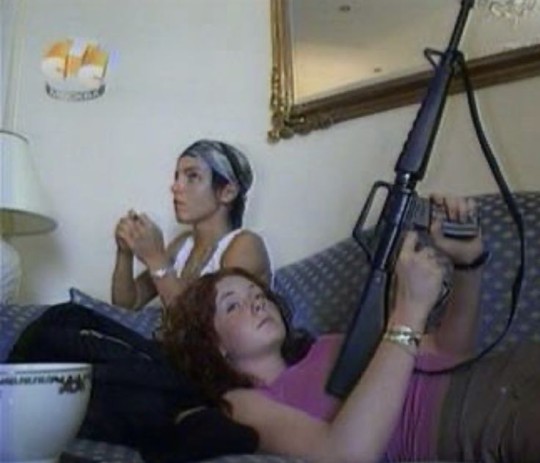
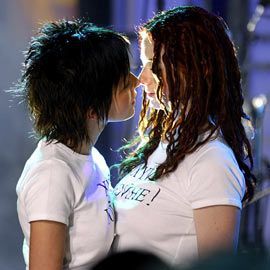

t.A.T.u (Russian: Тату) — Russian music duo formed in 1999 that consist Julia Volkova and Lena Katina. Lena Katina first music steps were taken in children's music pop band Avenue, in 1997 she joined Neposedy, later on, Julia Volkova also joined the formation (They were part of the band along with members like Sergey Lazarev and Vlad Tapalov). In 1998 Julia got kicked out of the band for bad behaviour, smoking cigarettes, drinking alcohol and getting in arguments with other band members, but Neposedy denied it and said that Julia left the band because of her age (Neposedy were children formation while Julia was 12 when joined the band) Lena left the band in 1999. Same year Ivan Shapovalov and his business partner Aleksander Voitinskiy planned to start a music project in Russia. They started organizing auditions in Moscow in early 1999 for teenage female vocalist. By the end of auditioning, the partners narrowed their search down to ten girls, including Lena and Julia that finally became the members of t.A.T.u. Lena and Julia knew each other before the auditions. Both girls stood out among the others because of their appearance and vocal experience, but the producers decided to start working with Lena. Katina began recording demos, including "Yugoslavia", a protest song about NATO boming of Yugoslavia, when the demos were cut, Shapovalov insisted that the project needs another girl, that will be a complete opposite of Lena. In late 1999 Julia Volkova was added to the project to complete the duo. Shapalov after adding Volkova to the project, noticed how close the girls are, he decided to use it and gave the band lesbian image, which made Voitinsky left the band because he said that the idea was immoral and he doesn't want to be part lf it.
"Ivan said, that we need second girl in a band, and that the band needs to be famous, He just said, that we need another girl, because if we will have two it will be happier and more interesting, we can take someone new, someone different, and then they will be singing together. Now i am working in a new project, not in Ivan project, he was a horrible collaborator (...)"
- Aleksander Voitinskiy for programme "Show-Business", 2000
According to Katina, Shapovalov was inspired to create the duo after the release of the Swedish film "Show me love" about romance between two school girls. After completing the duo producers decided to name the group word Тату (Tatu) It is a shortened version of russian phrase "Та любит Ту" (Ta lyubit tu — eng. This [girl] loves that [girl]) For the whole year girls were recording songs for their first album collaborating with Elena Kiper.
Debuted in 2000 with their single "Ya soshla s uma" The song describes the pain in a girl's soul because she is in love with another girl, but is afraid. It became a big hit in Central-Eastern Europe just like their next singles — "Nas ne dogoniat" and "30 minut". Their debut album "200 po Vstrechnoy" came out in May 2001, the english version of the album "200 km/h in the Wrong Lane" came out in 2002, the album was certified platinium by IFPI for over 1 milion copies sold in Europe and become the first foreign group to reach number 1 in Japan, it was also certified gold in United States. "All the thing she said" (english version of their song "Ya soshla s uma") have made it to first place of top songs in over 20 countries, and have been sold in 6 milion copies, it became one of the most succesful singles of XXI century. The controversial music video showing Julia Volkova and Lena Katina passionately kissing in rain infront of a crowd dressed in Catholic school uniforms was supposed to show — Created by their Manager Iwan Shapovalov — "love" between singers. Later on, t.A.T.u relased 3 english albums and 3 russian albums.
t.A.T.u scene image was controversial since beggining. They are most known from their first album, which was revolving around homosexual relations between Julia and Lena. During the promotion of second album they admitted that it all was just a marketing strategy, and they are not lesbians. Even after that they didn't give up on their homosexual characters. Lena Katina spoke up about it in one of their interviews in 2009
"Julia had some lesbian experiences before t.A.T.u, and i didn't, so it was obvious i was quite embarrased, it was foreign to me, but i agreed because i knew this topic is really important. I was on a meeting with fans in Los Angeles and alot of people are still greatful for us. One girl told me that t.A.T.u is the reason why she survived. It's a horrible feeling when you're a teenager and you know that you aren't like others. All your best friends are falling for boys, and you want a girl. You feel alone, and no one understands you, and then a band shows up and tells you that everything can happend in life and you shouldn't be afraid of who you are. When people are saying, we saved them from suicide, i feel like it wasn't pointless. (....) We are also actors somehow. We created a story of two girls in love, and we played it."
Their second album was about interpersonal problems, the russian title (Ludi Invalidy) itself was already controversial around organisations fighting for rights of disabled people. In their opinion the title was suggesting thath disables people don't live, they funcionate, and their only personality traits is stupidity, brutality and greed. Lena and Julia disagreed with organisations and said that they don't understans the point of singles name and the meaning behind it.
Their last pair of albums "Vesyolye Ubylki" and "Wasted Managment" was relased between 2008 and 2009. T.A.T.u oficially broke up in 2011, but they reunited to preform at special ocassions as The opening ceremony of the 2014 Winter Olympics in Sochi.
(It's my first longer post in here, sometimes inbetween of weird images i want to be posting some more productive stuff about topics that i find interesting, i will be posting more about my fav bands, i wanted to make more posts today but this one took me waaaayyy too much time. If u know anything else that you would like to add to this post, or correct me on my mistakes, feel free to comment :P)
#queer community#lgbtqia#lgbtq#early 2000s#2000s#nostalgiacore#nostalgia#music#2000s music#electropop#t.a.t.u.#russian music#2000s pop#im so scared#pop music
22 notes
·
View notes
Text
K-pop Discography Deep Dives: Dreamcatcher (Part ONE)
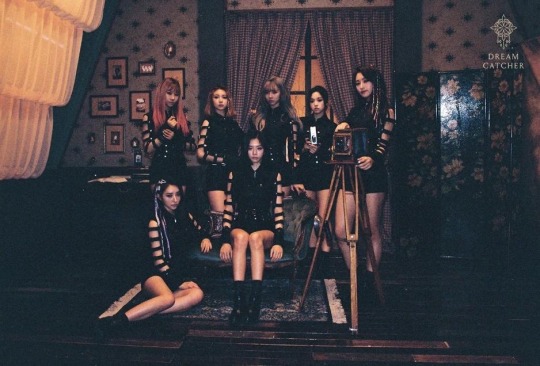
A Disclaimer: I was planning, when I first started Tumblr, to be a lurker, but then I began an office job and needed something to listen to to keep myself occupied. And then, I started going through entire K-pop groups’ repertoires, album by album, and jotting down my thoughts. And then, I stumbled into K-pop tumblr and decided, you know what, there’s at least four people on this hell site who would read in depth rants about these discographies and at least five who wouldn’t read it and then get mad because it’s kind of our job as K-pop fans. My lukewarm takes should be taken with an entire silo of salt and the knowledge that this is completely for fun and occupying my very bored, very neurodivergent brain. All this to say, for the love of god, I’m a sleep-deprived student and I don’t have time for internet hate, so don’t kill me. With that being said, enjoy!
Here are my credentials: I’m a HUGE fan of Dreamcatcher, and have been an Insomnia since mid-2021 or so, just after the release of BEcause. They were actually the first concert I’ve ever been to, and I couldn’t have asked for a better experience for that. They totally gave their all for those two hours and I ended up loving them even more afterward. I’m even considering going again if they have another tour.
Dreamcatcher debuted in early 2017, so they’re nearing their 7th anniversary (breaking K-pop’s infamous curse), with 7 members: JiU, SuA, Yoohyeon, Gahyeon, Handong, Dami, and Siyeon. Handong was not involved in their 2020 comebacks due to being in her home country of China when COVID broke out, but she’s since returned. They have very complicated storylines which I won’t be going too deeply into here besides when I think a specific song’s meaning in context is important to mention.
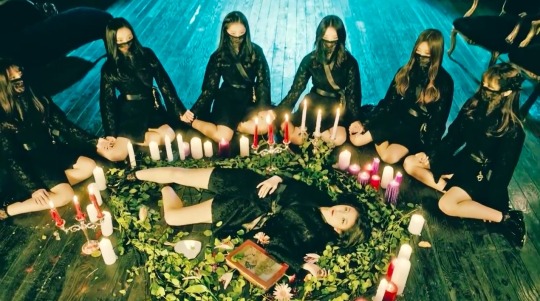
Their first single was Chase Me, which starts with a deceptively lovely piano and very typical for-late-3rd-gen-vocals. I was surprised by how k-poppy the song sounded, at least in its early stages and verses, but this was their debut after all. A lot of their early work is slowly stepping out of k-pop convention, one step at a time, although a sound all their own wouldn’t come for a couple songs. Any worries I had were assuaged by such a strong chorus, especially the combination of the bridge just before the last one.
Good Night immediately stands out from the often overly-bubbly, aegyo-filled 2017 k-pop landscape with its creepy ticking clock, marionette-like dance moves and an almost violent electric guitar riff. This time the guitar continues through the whole song, so there’s no fear of it sounding same-y. I’ll probably say this many times in this review, but I just can’t get over how well-suited DC’s vocals are to this rock sound, which isn’t always the case for other groups I’ve seen with a rock concept. The distorted voices in the bridge are a nice touch too. The b-side Lullaby is actually quite lovely, and is a good showcase for their voices in a more soothing context.
Fly High is a poppier sound for Dreamcatcher, although still with more of a rock base than is usual in k-pop, which does make sense as it’s supposed to be a prequel to their much darker storyline. I’ve heard it described before as a bit like an anime theme song, and I’d have to agree, especially the “I can make it!” combined with the strings, lighter electric guitar, and super high power note. Even with a bit of a sound change, Dreamcatcher never slows down their energy, which is something I really appreciate. They always sound like they wholeheartedly believe what they’re selling.
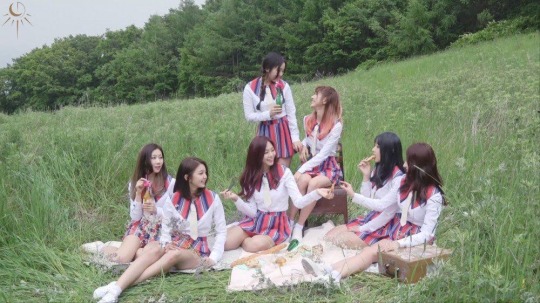
From the EP, Prequel, there are a few great b-sides I could choose (like the off-beat Sleep-walking), but I’m gonna have to say that Wake Up is my favorite. I’m totally biased, but I’ll just never forget the experience of watching them have the absolute best time performing this live for their encore and jumping into the stratosphere while waving a pride flag back and forth. It’s an anthem that needs an audience, first and foremost, and there’s really nothing more exciting than screaming “Wake up, wake up!” at the top of your lungs.
Full Moon is a special single for their first anniversary, and I won’t spend too much time on it, but I really like how it combines that anime-esque energy from Fly High, a harsher electric guitar, EDM, and some ballad elements. It’s a style that DC returns to later in their career, and it’s fun to see a slightly less complicated version here. I never gave this song much of a chance before so I’m glad I did now.
You & I is next in the “Nightmare” saga, and is probably both the most popular of that arc and the most similar to a lot of mainstream k-pop (which I do like, I want to be clear about that. This is not an attack on mainstream k-pop, guys, I run a blog about it.). Maybe it’s a product of that, but in such a strong catalogue it doesn’t really stand out to me. All of DC’s songs add other elements to their rock sound like EDM, pop, metal, or even a flute (we’ll get to that), but You & I is pretty straightforward, as are its lyrics. The chorus and the opening hook are both pretty good, I will admit, and always get me at least nodding to the song. Again, I in no way even dislike this one, and I’m not going to skip it if I’m doing a re-listen or if it comes up on shuffle, but I just never find myself going out of my way to listen to it.
Though the title isn’t my favorite, I quite like the EP Escape The Era. Which a Star may be an average b-side but it's really elevated by their voices and its twinkling instrumentation, while Scar takes some lovely strings and some crushing electric guitars and somehow turns itself from a rock song into a ballad and right back again. Mayday, meanwhile, is much like Wake Up with its anthemic answer, and immediately gets me headbanging to its hook.
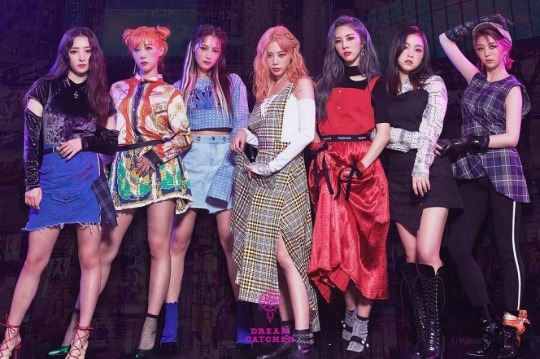
WHAT starts with a tense energy right out of the gate with those strings, and in what may be DC’s best first 20 seconds of a song, it culminates in an excellent electric guitar riff that would feel right at home in a BabyMetal song. When the song returns to “normal” after, it only adds to the sense of “wrong” and foreboding…until the chorus smashes through a brick wall with perfect metal anthem energy. In case it wasn’t clear, I love this song and it’s tied for my favorite. You just can’t do much better than a song encouraging people to wake up, fight their nightmares, and live another day, which is one of my personal favorite song subjects.
In a switch from Escape The Era, I love What but Alone In The City is one of my least-favorite of their albums. That being said, I do like the contrast between acoustic and electric guitars in Trap, and its build up is pretty great. But I usually have more than one liked b-side.
Over The Sky is another special single and returns to the softer, more string and pop-rock led base (or “anime theme”, I suppose). It feels much happier than a lot of Dreamcatcher’s singles, and is a nice break in between their very heavy discography. I especially like the twinkling quality of its background piano.
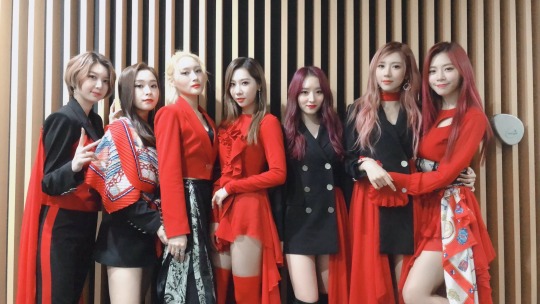
PIRI is the end of their nightmare saga, and is a continuation of the defiance seen in What. It’s named after a traditional Korean flute that the song uses to say “sound the alarm (piri), emergency, emergency.” This is the first time rap is incorporated in its own (albeit short) verse, and I think the combination works quite well. The inclusion of the flute in the background is something I’ve never heard in a song before, but its shrillness provides a good contrast to the very low guitar and drums and Dreamcatcher’s voices sitting in the middle, perfectly capturing the song’s whole idea of being stuck in between light and dark. Overall, a fitting finale.
From PIRI’s EP The End Of Nightmares, while I do really like the sweetness of the ballad Daydream, Diamond was an easy choice for me. It has quite a minimalistic chorus, which normally I’m not the biggest fan of (for evidence, look at any review I’ve ever written to hear me decry the existence of anti-drops), but here it’s to let the great guitar hook and electronic background have some time to be appreciated and its fuller pre and post-choruses make up for it.
Deja Vu is a special single made for a game collaboration, so perhaps one would assume it to be a usual ballad or easily-overlooked piece of a great discography. One would assume very, very wrong. I assumed this, when I heard the first, very slow verse and the backing piano. Deja Vu definitely leans more into melancholy than most of their singles, but it's really at the end of the pre-chorus where the band comes in and DC goes full-on rock ballad that it begins to sound like them.The song is a slow burn, definitely, but the incredible catharsis at the end is totally worth it. Just go watch the music video itself, which is full of delightful drama and betrayal, and can best be described as “Macbeth, if it was gay, Korean, and magical.” You’re welcome.

Raid Of Dream, the EP, was also produced for the game, but the mix of metal clashing and delicate vocals in Silent Night, the backing piano for the full-on ballad Polaris, and the return of the anime theme (plus guitar solo!!) in the call-to-action that is Curse Of The Spider render it quite a strong album in their greater discography.
I don’t normally dive too deeply into Japanese releases, but, like with Taemin, Dreamcatcher’s offer an interesting expansion on their work. Endless Night starts with much harsher rock than most of their singles, while Breaking Out features a surprisingly chill tropical beat, and No More goes full now-or-never nu metal with guitar riffs that would make Babymetal proud.
R. o. S. E. BLUE is another special single produced for a game, and does lead into the more ballady side of k-pop soundtrack songs, but without sacrificing Dreamcatcher’s rock edges. It, like Deja Vu, is a slow burn that doesn’t seem to have much energy at first, but builds up to it through its great pre-choruses. It’s definitely not as good as Deja Vu (few things are), but does remind me of later-stage Gfriend’s more dramatic and celestial sound, and the music video follows JiU attempting to rescue her friends from the magical prison their minds are trapped in, at the expense of herself.
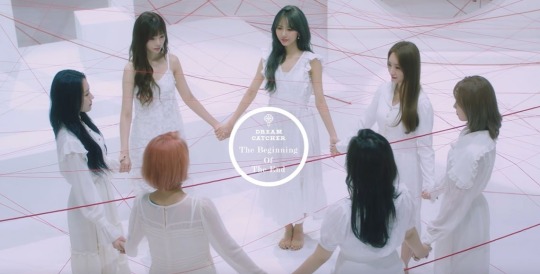
So that’s where we’ll end it for now, being around halfway through. I mentioned last time in my TXT review that this was supposed to be a one-parter and became two, but the second one is basically done and will be coming out in a few days (after I listen to the new album), not a week from now, and I won’t be doing supplementals. Apologies to the five people who actually read those, lol. So, I’ll see you next time for Part Two. Tschüss!
#k-pop#review#k-pop deep dive#k pop girl groups#dreamcatcher#gahyeon#siyeon#SuA#JiU#handong#yoohyeon#Dami#maison#scream#OOTD#boca#you and i#chase me#piri#versus villain#Spotify
20 notes
·
View notes
Photo




Heavy Rock - 2004, interview with Paul + Review
'Reise Reise' is probably the biggest European metal release of the year, on September 27th the Germans reign supreme in their own right. We bring you to these pages our meeting with the guitarist Paul Landers, who passed through the capital to promote the album. Mario Rockdrigo hunted it in situ.
How has the acquired popularity affected the band?
We have overcome all this success and popularity quite well because it did not fall from the sky, that is, before we played in other groups and we have been making music for 10 years. We knew the business a bit and we weren't overwhelmed by it; besides we are no longer 17 years old - and so much, in fact Paul is about to turn 40 - and this helped us to have our feet on the ground.
The band's music so far hasn't noticed a lot of changes, aren't you afraid of falling into monotony?
It has always been our dream to sound monotonous, although on this album we are less so than on the first, 'Herzeleid', because there are two types of monotony: one boring and one interesting, and if our case were the first we would not have reached our goal.
What are the expectations of the band towards this new album?
It is always somewhat difficult to explain the expectations of each one and if I am honest, one does not stop being afraid of rejection and of not liking anyone, but you never really know beforehand what is going to happen. When we made the album we thought more about finishing songs that we liked and we concentrated on that, we didn't ramble so much about how the release was going to be, how successful we were going to be, but if you ask me now about my forecast I think that we are going to have success.
The album was curiously recorded in Malaga; why this choice?
When we record a record we always like to go out; We prefer not to do it in Germany and when deciding we look a little at the temperatures at that time. In this case it was winter and we wanted to go to a place where there was good weather; Last year we were in France and this year we were looking for a new place, when they showed us the photos of 'El Cortijo' we liked it right away and we quickly decided to go there, we also like Spanish coffee. What is also important to note is that we either need mountains or the sea and in this case we had both.
In this new production there is a greater emphasis on the guitars, which have even more gray hair…
It's interesting because at first we thought to give less weight to the guitars, but it may be that since we've also applied less electronics, synthesizers, sequences or rave mix, they sound better or stronger. Basically Christoph Schneider, our drummer, is to blame, because he was tired of having so much electronic and so many support devices; he suggested that it was necessary to remove all the surrounding paraphernalia and do what we knew how: play.
What are the topics in the lyrics of this new production?
Well, I am going to go into the details a little, for example, a song is called «I have to destroy... but the things that do not belong to me»; In 'Mein Teil', the first single, we reflect a story that happened in Germany, about a case of cannibalism, that of the Rotenburg Cannibal, in which a man voluntarily let himself be eaten by another. In another song we deal with the theme of a well-known poem in our country that talks about a father who is going to kill his son for fear that he will die anyway because the plane they are on falls down. We also treat symbolically, in another song, the story of a man who is walling his wife in the foundation of her house and it's called ‘Stein um Stein.’
You will surely know this question well, but it is necessary to ask it given the gray of the album... Is Rammstein a metal band?
It is quite difficult for a musician to classify himself or box himself in and the usual answer is a bit evasive; It is really difficult to classify Rammstein because we use elements from different styles of music and therefore we cannot say that we are a metal band. On this new album it's especially hard to say what kind of music we represent, just pointing out that it's rock music is a bit gross, it's not right to classify it that way but it's probably the closest thing to it.
What has been Rammstein's formula to achieve success in a German scene full of bands with similar styles like Blind Passengers, In Extremo, KMFDM and in other times Die Krupps?
If there were a formula for success there would be more successful groups.
It's always easier to look back, wonder why a certain group had it and why another didn't. I think that to have it, you first need a vocalist who has charisma and some empathy, in addition to the main thing, good music... although you also need luck.
What are the future plans for Rammstein?
It's simple, in November we are going to start our European tour and we will go, among other countries, to Spain.
What is Rammstein's message for his followers?
We have really enjoyed making this album and we are sure you will enjoy it too. Success, if you really look for it you will get it. Leave your profession, do what you really like and you will succeed.
‘Mein Teil’, the polemics
No one escapes the band's desire to create controversy, in fact the first photo session that appeared this summer -white shirt and tie- seems to be taken from "Days of Fury" (1993), the film starring Michael Douglas where an exemplary worker goes crazy loading up on weapons and wreaking havoc in his city.
The story of the Rotenburg cannibal was still very recent and the gang knows perfectly well which is the best sore to stick their finger. The case of the computer expert Armin Meiwes and the electronic engineer with whom he had relations and whom he devoured with his consent horrified the entire world, and the lyrics of the song, which contain phrases such as "I want my share" or "you are what you eat ' has raised blisters. To make matters worse, you can find obvious parallels to some images of the video clip. Let us remember that devourer and devoured ate the second's penis; well, here we can see how an angel has sex or prays with Till Lindemann while he is tearing it apart and eating it little by little. In addition, the musicians appear happily, on a short leash, dragging themselves through the streets of the city with the faces of rabid and... hungry dogs. In the video they can also be seen in agonizing or deranged actions, adding as a curiosity that the guitarist Richard Kruspe appears fighting 'against himself'; In reality, it is a double that was searched through the group's website.
The clip was filmed in Berlin on June 2 and 3 by a team of 50 people led by Zoran Bihac ('Links 2 3 4'), also the author of the concept with the group. The original filming location was the Babelsberg studios, but they were occupied by the 'Mission Impossible 3' crew, so they transformed the Treptow pavilion for that purpose. The external images, shot during the second day, correspond to the German Opera, located in Bismarckstrasse. The premiere took place on July 8.
In order to understand how tremendously popular/unpopular the case of the cannibal in Teutonic lands continues to be, it should be noted that a film version of the story is being prepared by Rosa von Praunheim, an experienced and renowned director, icon of the gay movement in Germany, who will title the film. 'Your Heart in my Brain'.
‘Mein Teil’ has been sold as a maxi cd jewel case (in a special plastic jewelery box) with the following content: [1] ‘Mein Teil’ - 4:23. [2] 'Mein Teil' (You are what you eat), Pet Shop Boys remix - 4:07. [3] 'Mein Teil' (The return to the New York buffet mix), remix by Arthur Baker (famous predictor who has worked with Dylan, Springsteen, Beastie Boys or New Order among bulls) - 7:22. [4] ‘Mein Teil’ (There are no guitars on this mix), disco remix again by electronic poppers Pet Shop Boys - 7:20.
There are also versions in digipack (with cardboard box) and pock-it single (smaller than normal), the latter with only the first two cuts. In some countries there will be a standard single with the two songs from the pock-it, and there is even a restricted version on vinyl with a different track-list than all the other editions, specially designed for dk's.
The digipack and jewel versions come with a personal and non-transferable single-use code to charge access to a special area of the group's website where high-resolution photos or videos are accessed and which will be updated until the end of the year.
Each one of the different editions is being a success, once again the talk against the group has no effect, as shown by the fact that the aforementioned single has (at 2 in Germany) or that the song 'Mein Herz brennt' which opened 'Mutter' now appears in a Mercedes Benz advertisement on English television.
Rammstein uses false praise to mock the "Americanization" to which we have been subtly subjected, decade after decade, by the US. First, the group appears stepping on the moon, emulating the feat of Armstrong and company. (In fact, towards the end, the six musicians dance holding each other and in a circle around the stigmatized Yankee flag). The rest of the video is, however, even more revealing, different ethnic groups succumb to trash culture: an African tribe eats pizza while watching TV and is visited by Santa Claus, a Mohammedan prays in the direction of an oil extractor, a A Hindu smokes filter cigarettes, a Japanese dressed as a rocker combs his hair on the back of his motorcycle, Tibetan children eat hamburgers and drink a certain soft drink...
Great, a work of art that will help us enter this 21st century without trauma, where we will have to get rid of all the prejudices that one of the countries with the least history, tradition and, ultimately, culture on the globe has "inflicted" on us.
The video was recorded on August 6 and 7 -in days ranging from 5:00 p.m. to 5:00 a.m.- under the orders of director Jörn Heitmann (head of 'Ich will' or 'Sonne' for example) in an abandoned chemical plant in Rüdersdorf, a town near Berlin. For the lunar scenes, 240 tons of ash were used. The team worked quickly, since the premiere took place on October 11. As for its commercial version, the second single, which goes on sale at the beginning of October as a maxi, contains: 1- Amerika 2- Amerika (in English) 3- Amerika (Digital Hardcore Mix by Alec Empire) 4- Amerika (Western Remix by Olson Involtini) 5- Amerika (Andy Panthen & Mat Diaz's Clubmix) 6- Amerika (Electro Ghetto Remix by Bushido and Ilan) 7- Amerika (Jam & Spoon So kann's gehen Mix) 8- Mein Herz Brennt Orchesterlied V ( Album Version).
Here is the content of the album, which by the way will appear in two formats, normal (with plastic box) and digipack.
1. 'Reise, Reise' - The soft passage of the keyboard to the beat of a cadent tempo is broken by the force of the string instruments, which will soon drift towards gloomy paths. The chorus, where a female choir is heard, has a lot to do with traditional German music, approaching the sound of In Extremo.
2. 'Amerika' - A ditty as silly as the words that accompany it: 'We're living in America', but one that will surely become one of their definitive anthems. Ideal to sing it in your concerts.
3. 'Daila Lama' - Disturbing clean guitar riff is the tapestry on which Till's lower registers are drawn, degenerating into a thumping accompaniment, the loop repeats before entering a lighter part, where keys emerge and female voices.
4. 'Keine lust'. The initial Paz lasts a few seconds, because when the guitars come in we come across one of the most forceful songs in his discography, clearly indebted to Rammstein's music, not being especially fast. The contrast comes at the end of the chorus, with the vocalist adopting a tone of suffered delicacy.
5. 'Morgenstern'. A mixed vocal chorus intones a chant of sorrow before the group rudely breaks in again, though by now the riffs in what you've been listening to are beginning to all seem similar. Once again German folk makes an appearance in the chorus. The drum rhythms walk towards Latin without this affecting the compactness of the song.
6. 'Stein um Stein'. Relaxed beginning where the corpulent homogeneity that was already turning out to be monotonous is lost to immerse ourselves in a piece where the group is no less epic for this reason. Lindemann displays all of his amalgamation of vocal resources.
7. 'Mein teil'. Knowing what the topic is about, and once you've seen the video, the gloomy initial keys scare you a bit. It is perhaps the cut where there is more electronic resource, like the strange effects of Flake in the verse or the synthesized sound of the bass.
8. ‘Ohne dich’. The ballad on the record, with the air of a lullaby and absolutely heir to the musical traditions of his land.
9. ‘Amour’. The last section of the cd lowers the intensity, since we are facing another composition with a calm look, in fact the base is essentially pop, although the voice makes the difference. It escapes no one that this band also sucks from The Cure, Bauhaus and many others.
10. ‘Los’. They recover a characteristic of 'Mutter', the use of acoustic guitars to face mastontic riffs. It retains the band's stamp, but a bluesy plucking ends up throwing you off balance.
11. 'Moskau'. Once again the 80s make an appearance, a sinister halo without being a particularly heavy song where Till takes turns taking turns with a lively voice.
From September 27 when ‘Reise Reise’ sees the light until the beginning of November when the presentation tour begins, there is a good stretch that will serve the fans to learn it from beginning to end before going live.
That seems to be the intention of the group, which is seen to be very convinced of the result of the work, which is why it will possibly emphasize the repertoires with it; On the other hand, this way the group will have more time to rehearse and to finalize the production of the show, which will surely be impressive once again.
The starting signal will be given with their only German concert in November, on the 1st in Mannheim. Then they will set foot, with only one performance per country, Belgium, Holland and Portugal, that will be before disembarking in the European country with the most performances except Germany, which is... Spain! There are three shows planned with which it is verified that there is a special connection between Rammstein and the Iberian Peninsula: 10 Madrid (La Cubierta), 11 Barcelona (Palau Olympic de Badalona) and 12 San Sebastián (Anoeta Velodrome). The following stops will be in Norway, Sweden, Denmark, Estonia, Finland, Russia, Poland and the Czech Republic, ending on December 5 in Switzerland, always with a concert in each country except Russia, which will have two dates. Back in Germany they will be performing there until the middle of the last month of the year, culminating the European tour with two performances at the Velodrome in Berlin.
After the Christmas holidays, the natural step would be for them to cross the pond, either to the States or to Latin America, although these are assumptions without great value, especially in the case of a group as unpredictable as Rammstein; they could always spin more for Europe or opt for other areas such as Japan or Australia.
#Rammstein#Paul Landers#Till Lindemann#Flake#Christoph Schneider#Oliver Riedel#Richard Kruspe#2004#interview#review#translation#*scans#*
53 notes
·
View notes
Text
WITHIN TEMPTATION's SHARON DEN ADEL On New Music: 'We Really Have An Idea What We Wanna Do Next'
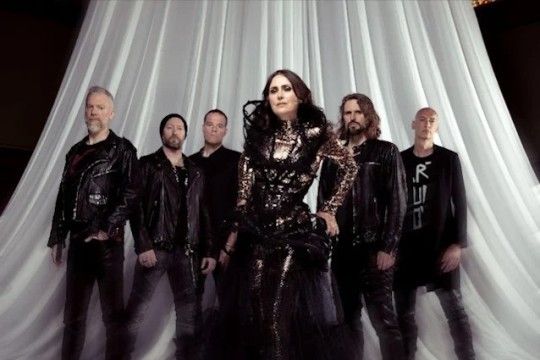
In a new interview with the "Everblack" podcast, WITHIN TEMPTATION frontwoman Sharon Den Adel was asked if she and her bandmates have commenced work on material for the follow-up to 2023's "Bleed Out" album. She responded (as transcribed by BLABBERMOUTH.NET): "Well, we, we are trying to make… That's also so funny because I was talking to Robert [Westerholt, WITHIN TEMPTATION guitarist and Sharon's husband]. He's, like, 'Yeah, we're gonna take our time this time — maybe two years, maybe a little bit longer — just to make the perfect album.' And then we started writing. 'Oh my God, it's going really well. Yeah. Yeah. Yeah. Maybe we should release it very soon.' It's, like, I'm going from left to right.
"I don't know. I can't say it anymore because I don't wanna disappoint anyone," she continued. "We're just gonna see where it ends. But it goes really well. And we really have an idea what we wanna do next."
Sharon also touched upon WITHIN TEMPTATION's constant musical evolution, saying: "The fire hasn't died, so, yes, we do try to continue and develop. But I think that's what's always been inspirational to us — not to do the same thing over and over and make that even better, but it's more, like, to finalize that or something, but more like trying new things. I think that's what makes our blood stream, makes it boil, and we can't wait to do the next thing. But I also admire people who can make their style a certain art and make it perfect or somehow. But it's for us anyway. We always wanna do something new again."
In December 2023, Den Adel was asked by Mexico's Summa Inferno why it was important for her and her bandmates to voice their political views in some of their recently released songs, including "Wireless" and the title track of their latest album "Bleed Out", which have highlighted such current topics as the war in Ukraine and the suspicious death of Mahsa Amini, an Iranian woman "detained" for not wearing a hijab. She said: "We are musicians. And what do musicians do? They're storytellers, in my opinion. At least that's how I see myself, as a storyteller.
"Back in the day when there were castles, hundreds of years ago, when the musicians were traveling from country to country, what they did is bring the news from one country to another country," she explained. "If there was a war far down South, then half year later, people would know up North because then the musicians came and they make music, telling the stories of what's happening in the world. And I think that essence of being a musician, I think that's important. I think the essence of keeping certain subjects alive in a different way than in the past, of course, but now more like the news goes so fast in our time, because we have Internet and everything, we know what's happening in every country, more or less. And the thing is it becomes old news very fast. But certain things you need to keep addressing and talking about, like what's happening in Iran, for instance, but also the war in the Ukraine, and of course now that what's happening in Gaza and in Israel. Those topics are important to talk about.
"For us, we've written songs about certain of these topics, like Ukraine and Iran," Sharon added. "We did write something about that. We were inspired by that. So that's why we're talking about it in our interviews. And because it becomes old news very quickly here in Europe. I don't know how it's in your country, but nobody talks that much anymore about the Ukraine or what's happening in Iran. Not at all, because it's not in the news anymore. Ukraine is, because we are, of course, supporting them, but in different ways from a European point of view. But Iran, it's already very much old news since Mahsa Amini died because she resisted the morality police and died in a horrible way after being beaten to death, just because she wore her clothes in an incorrect way, to them. And it's very important to talk about these topics because otherwise it becomes old news and their fight is still going on. And that's in many subjects. We could have written about so many things in the world, even about South America where certain things are happening. But these were the things that inspired us when we were in the studio. At that moment, the war broke out in Ukraine. At that moment, Mahsa Amini had just died and we watched the news, and before we knew it, it was integrated in our music. But it could have been also other topics that are just as much needed to be talked about, of course. But these were the things that were happening in the moment when we were writing music."
Asked if she is afraid of the backlash and criticism she and the rest of WITHIN TEMPTATION might receive for publicly voicing their political views, Sharon said: "Well, I believe in democracy. And I think also we have a voice, and I believe in debating. What I hope to do with this — we're not lashing out or criticizing anything. It's more like we try to keep the subject alive because just by talking about it, we can bring other people to new ideas or get a little bit deeper into the subject or start being interested in the subject and thinking about what is the right thing to do. What kind of world do we wanna live in? I think that's a good question. So I'm not afraid of feeling attacked because of the fact that we take a certain point of view because I think… Well, I think it's, that's the thing of democracy. We can all be a voice and we can all contribute to the debate on what kind of world do you wanna live in and what do you accept from each other and what don't we accept from each other. There should be a certain pressure from other countries trying to help certain people in need. And I think it's most important that we support those who are in oppression, who are oppressed, and to let them know there's people thinking about them and supporting them."
youtube
14 notes
·
View notes